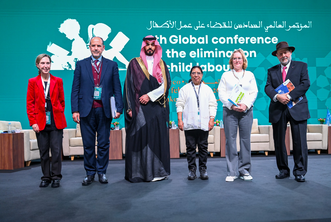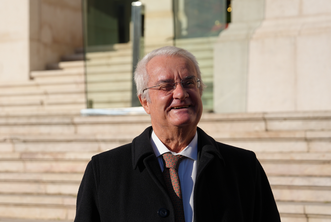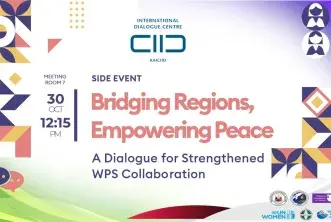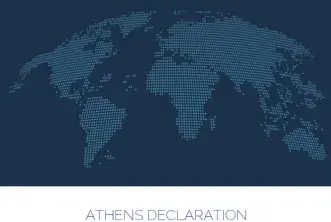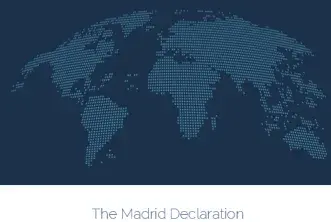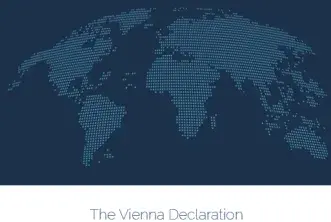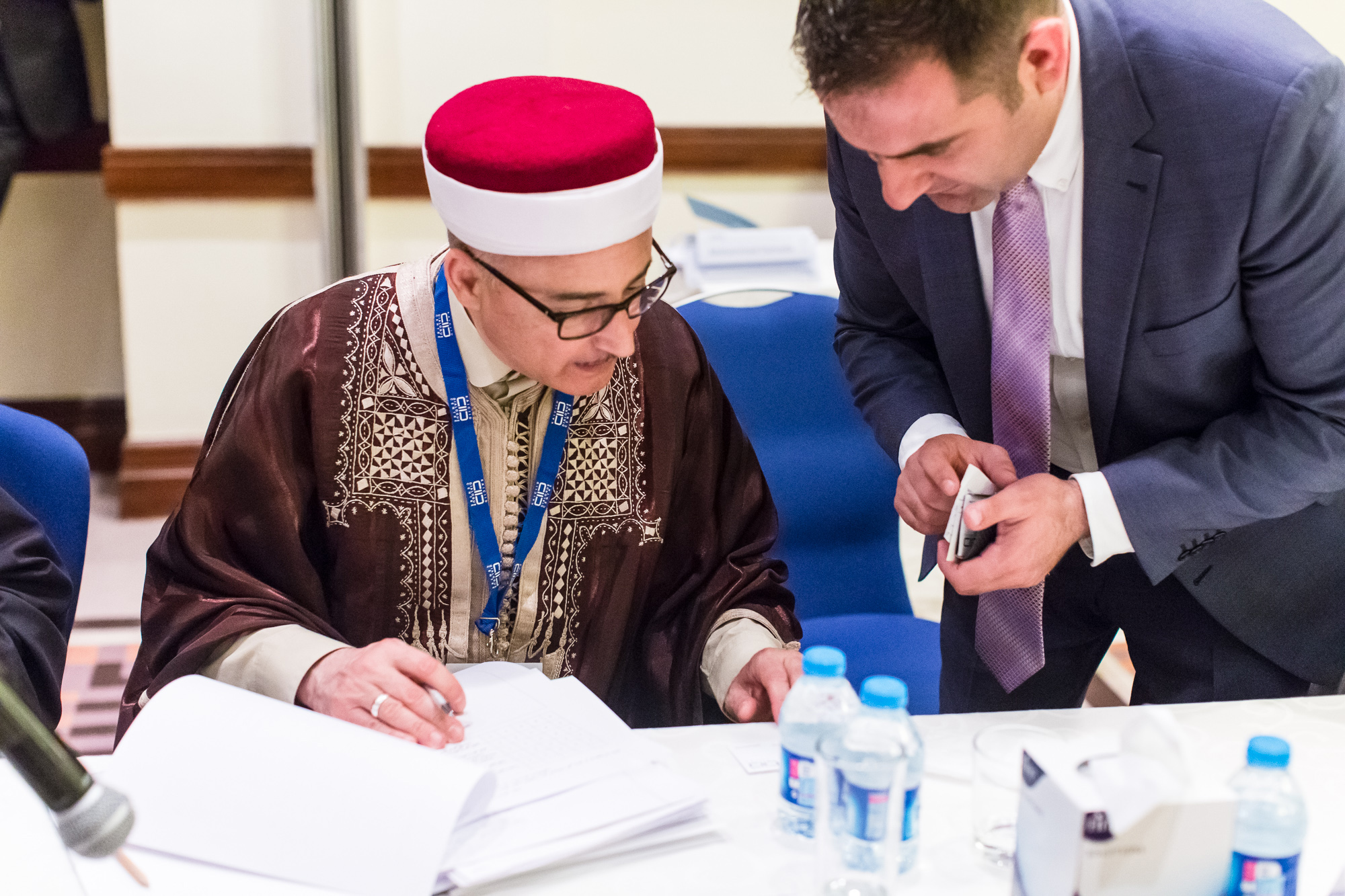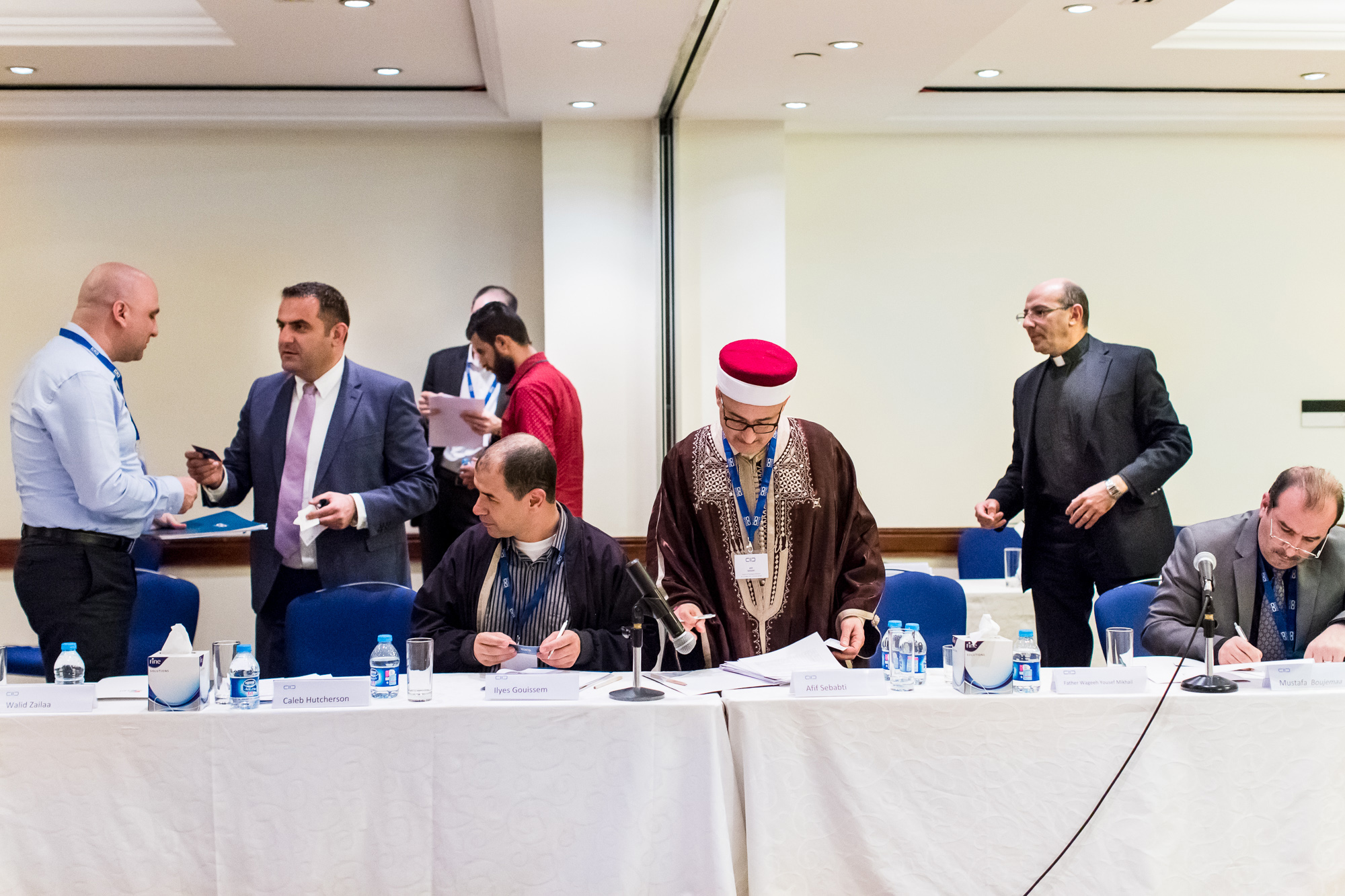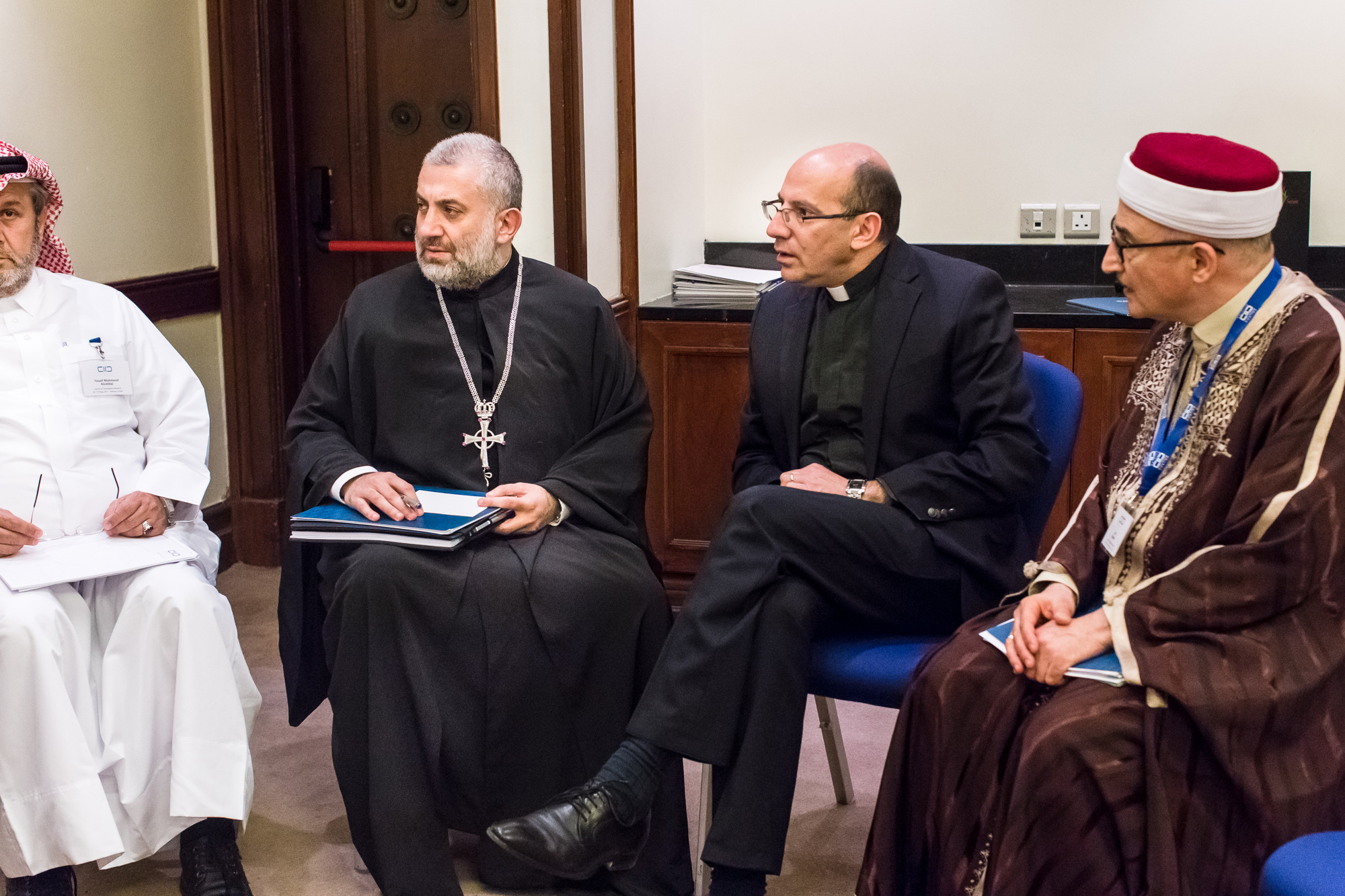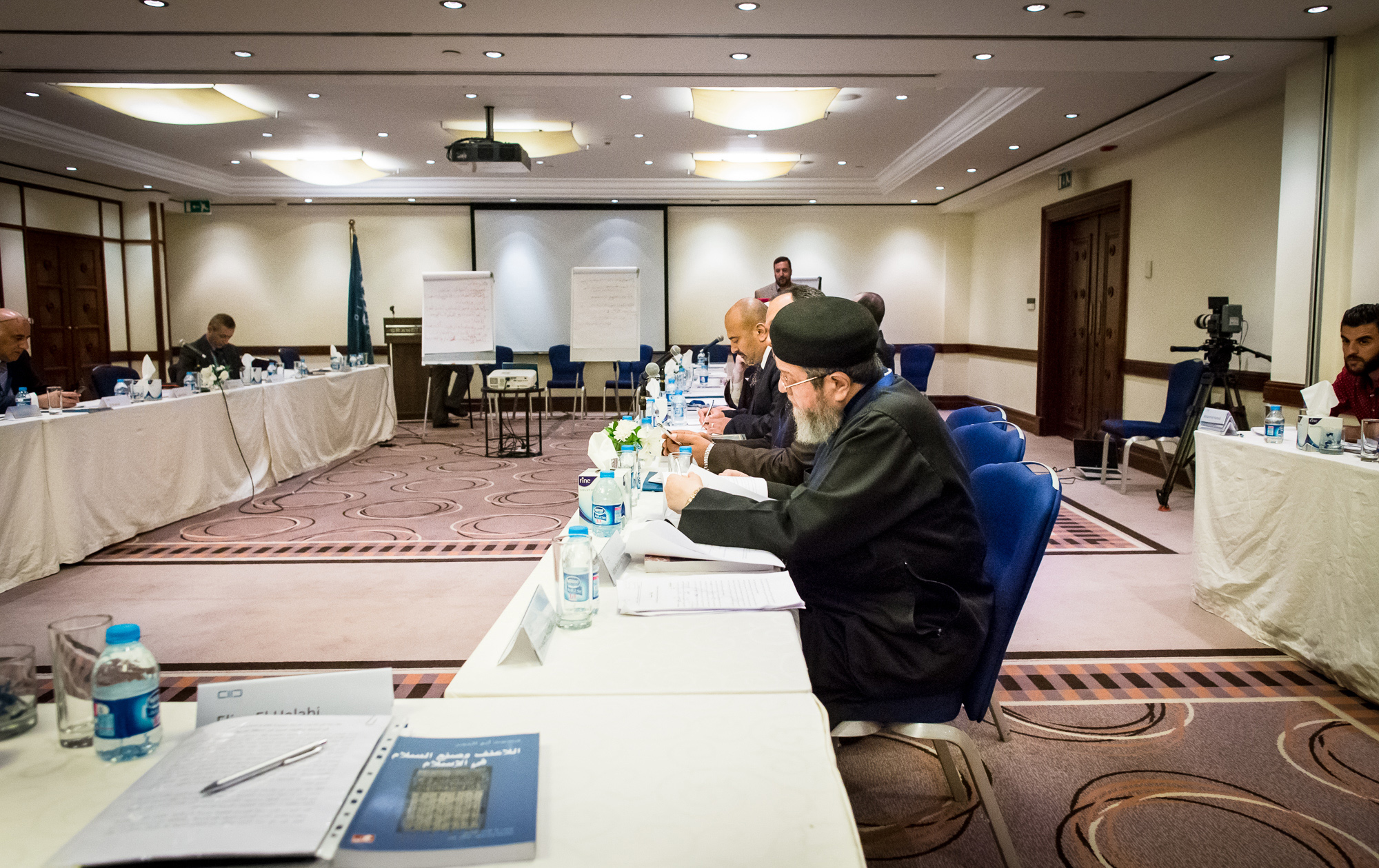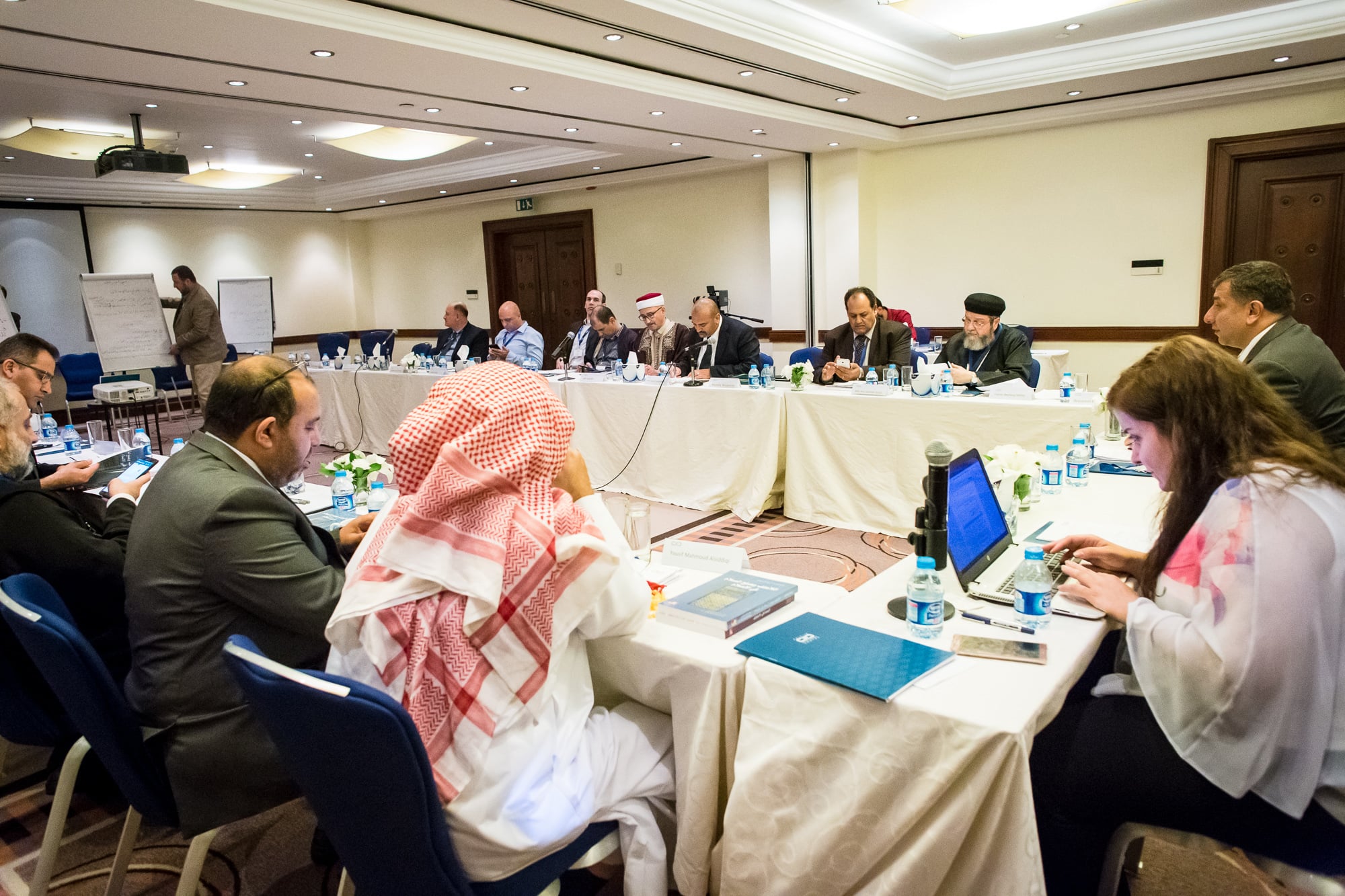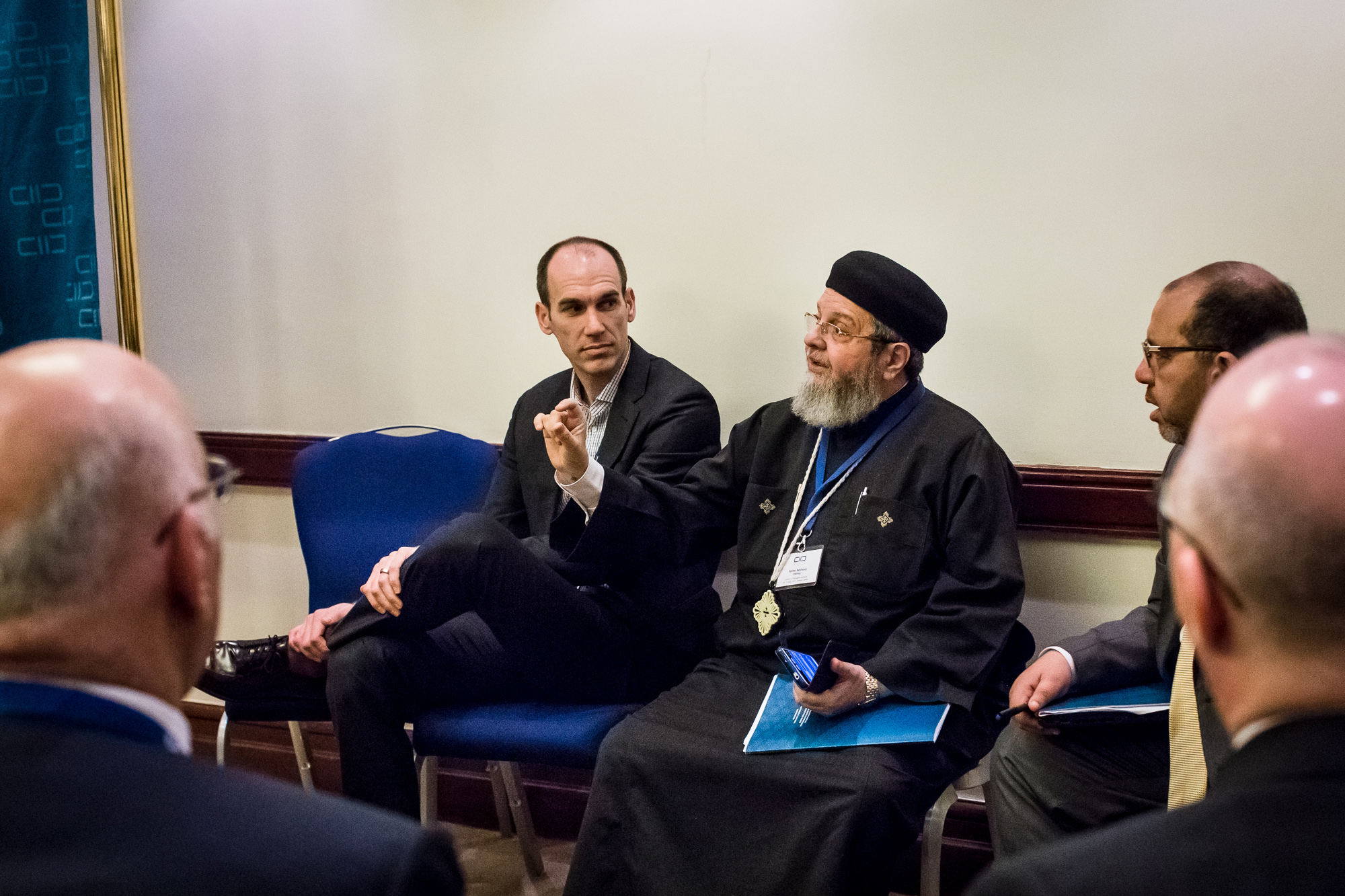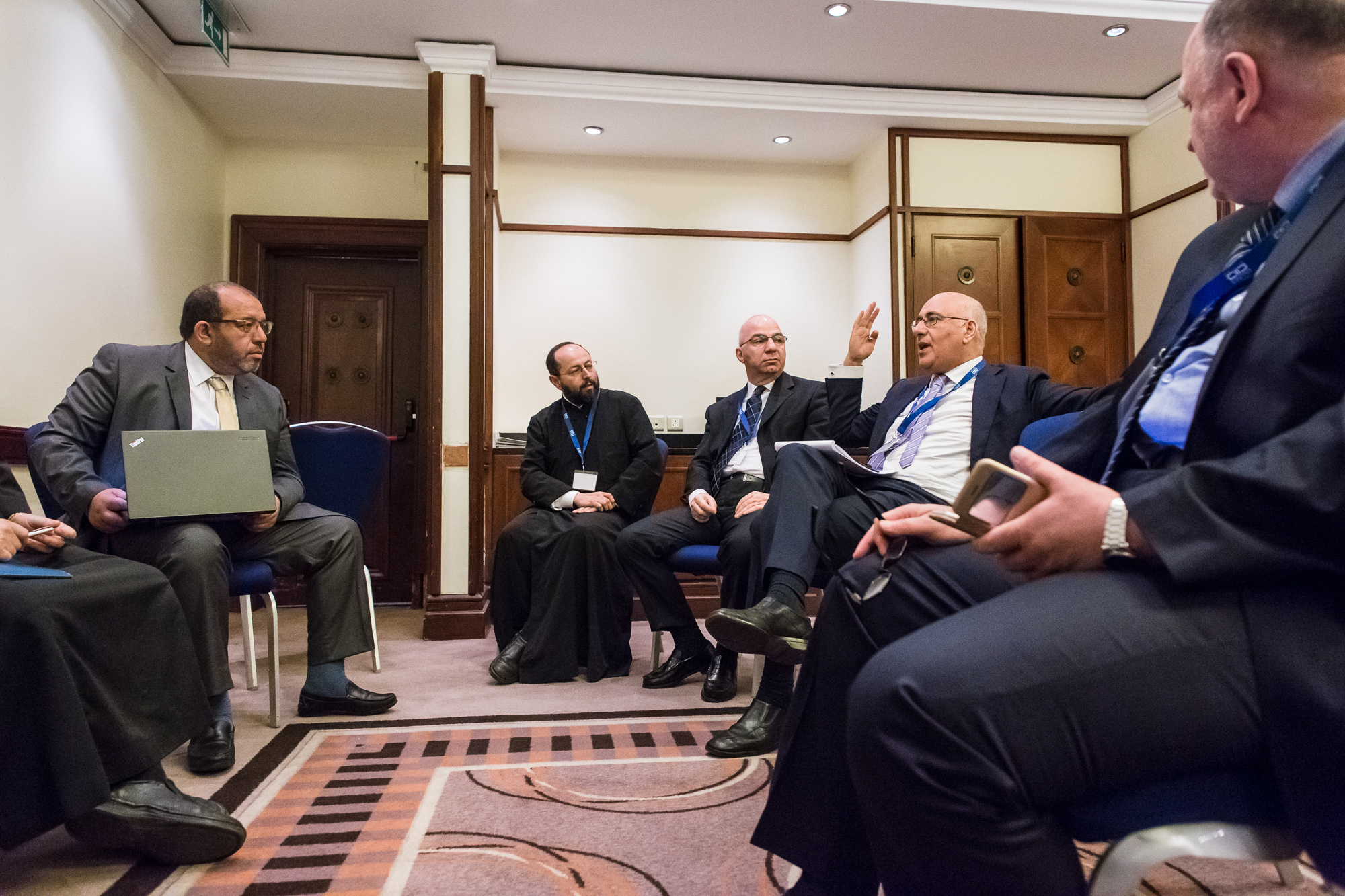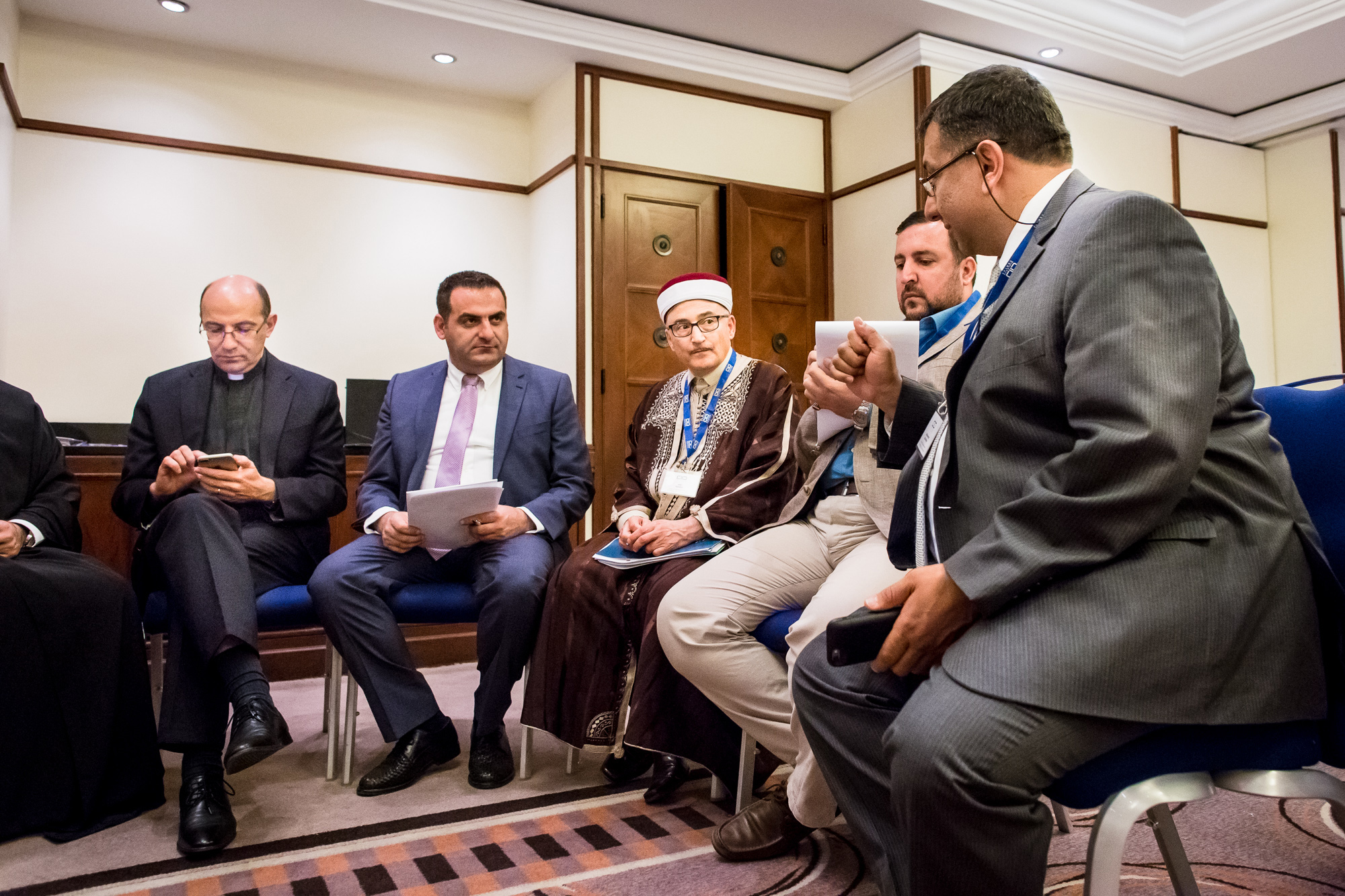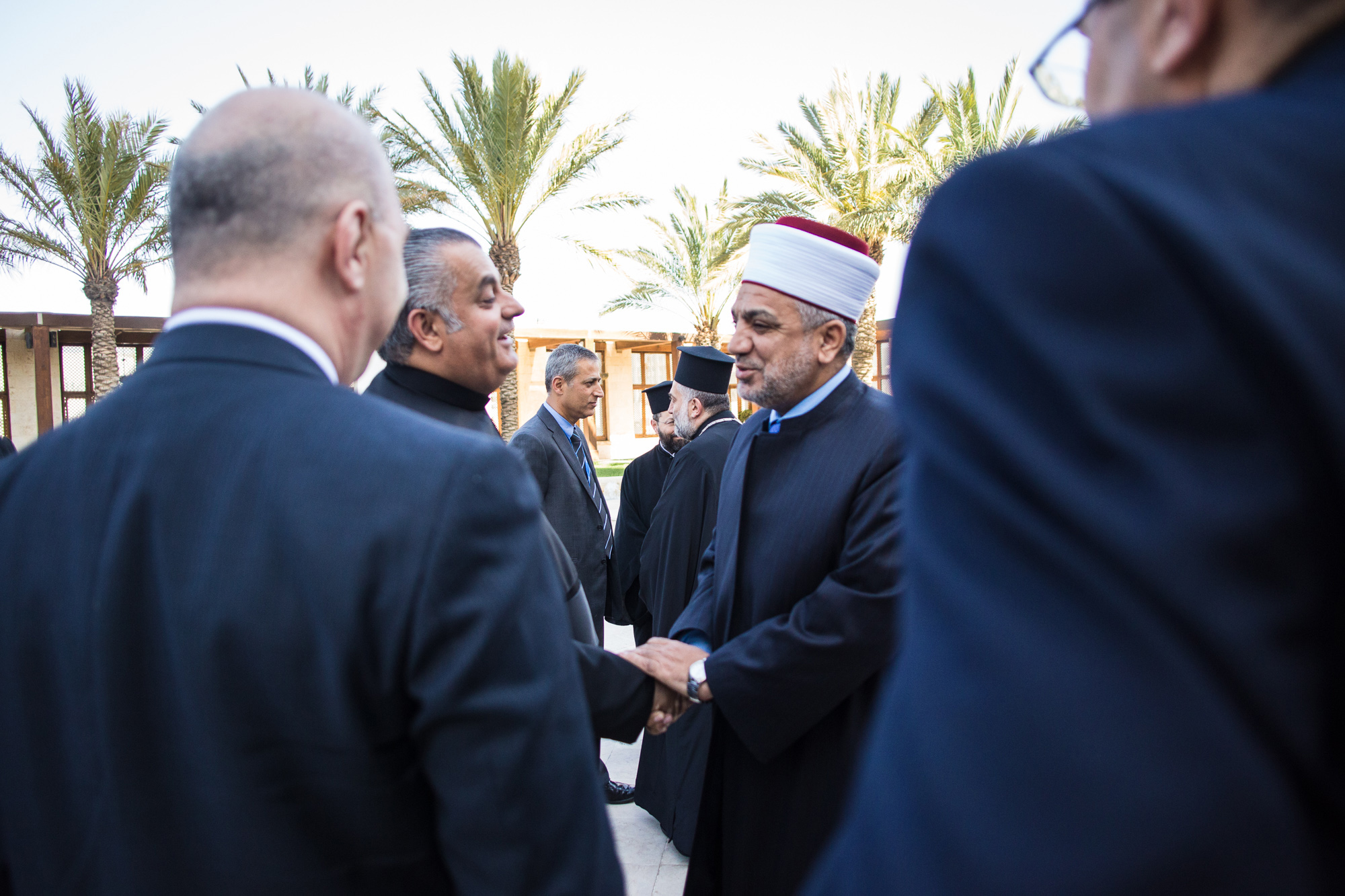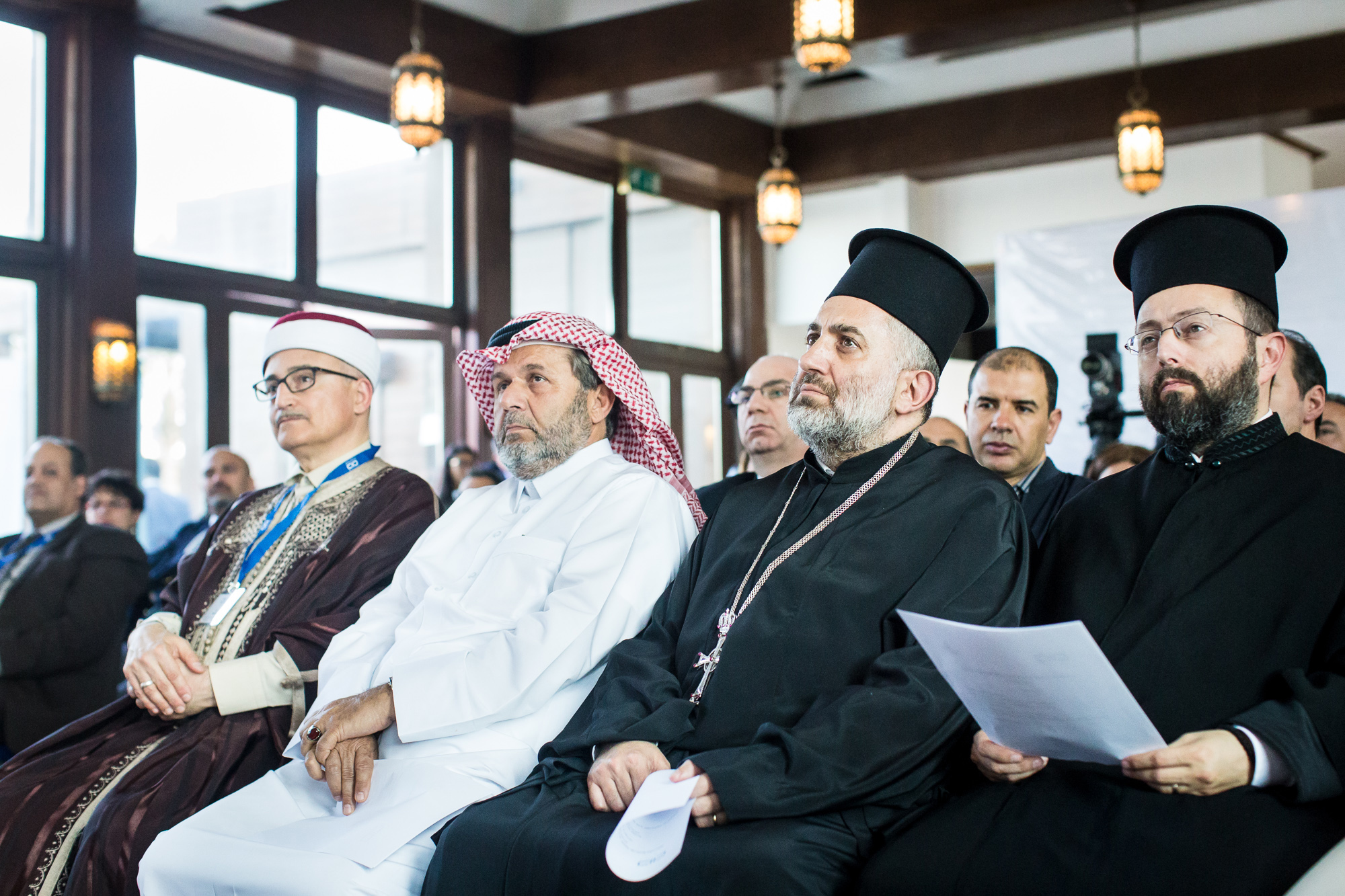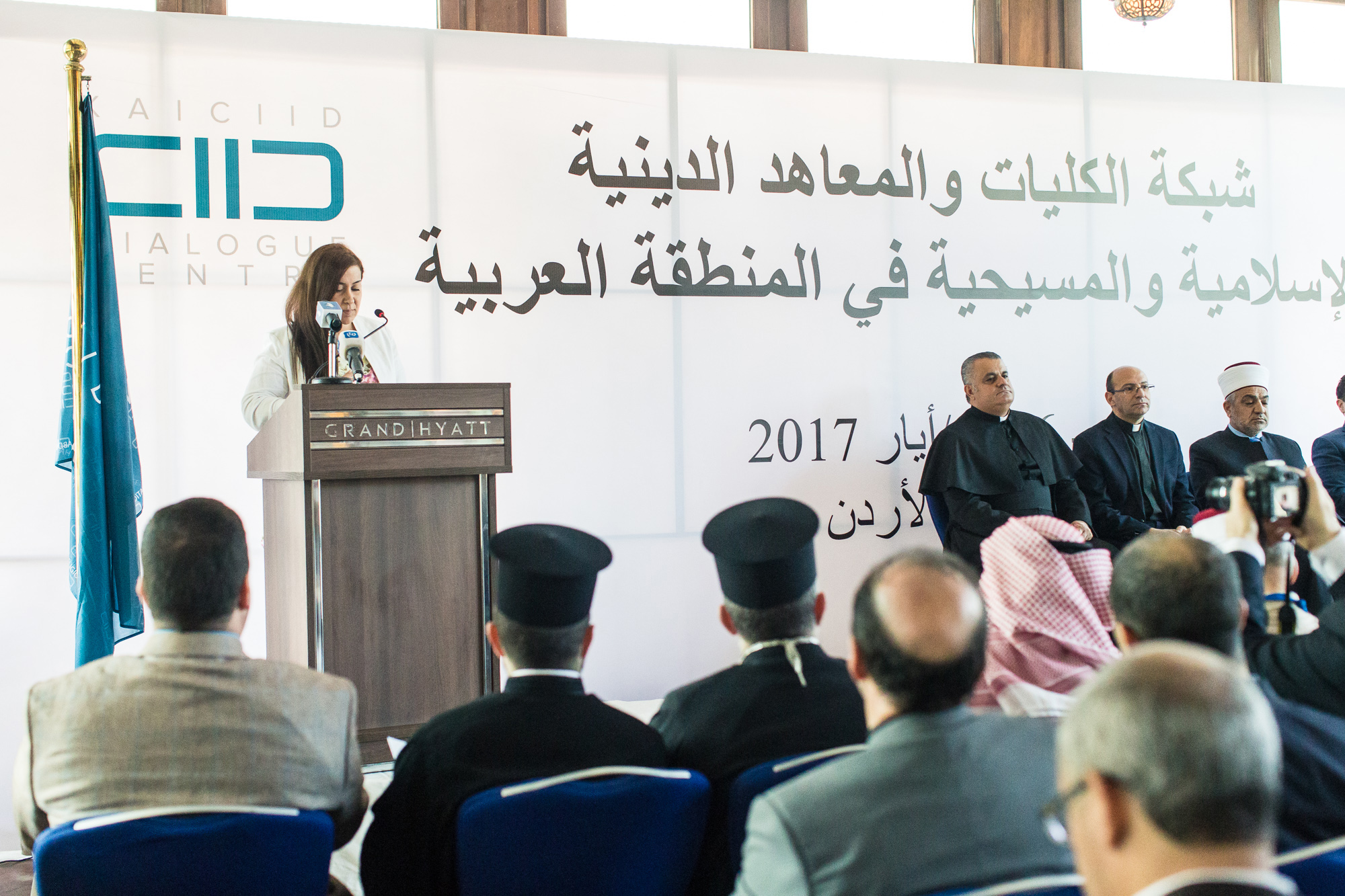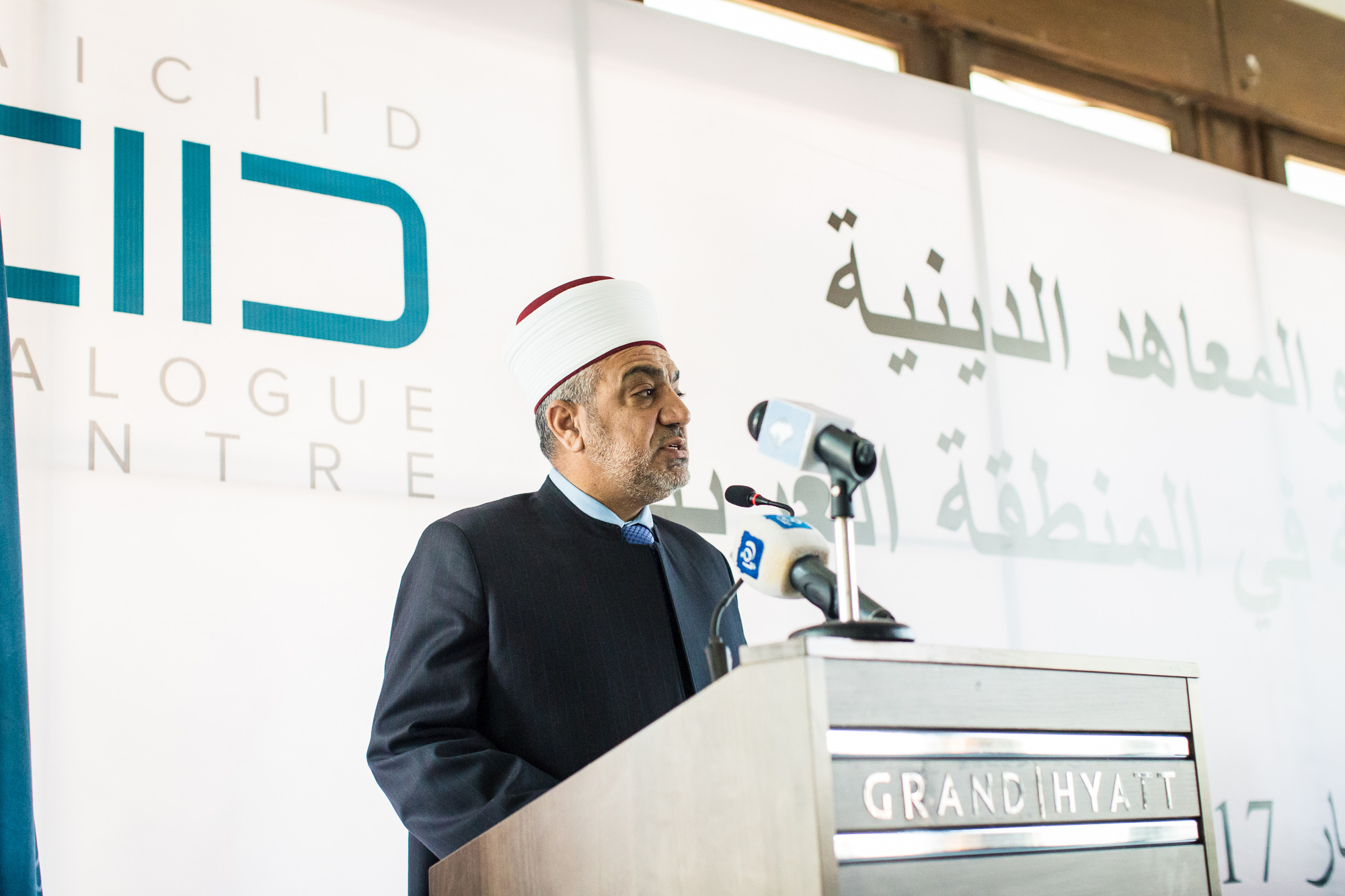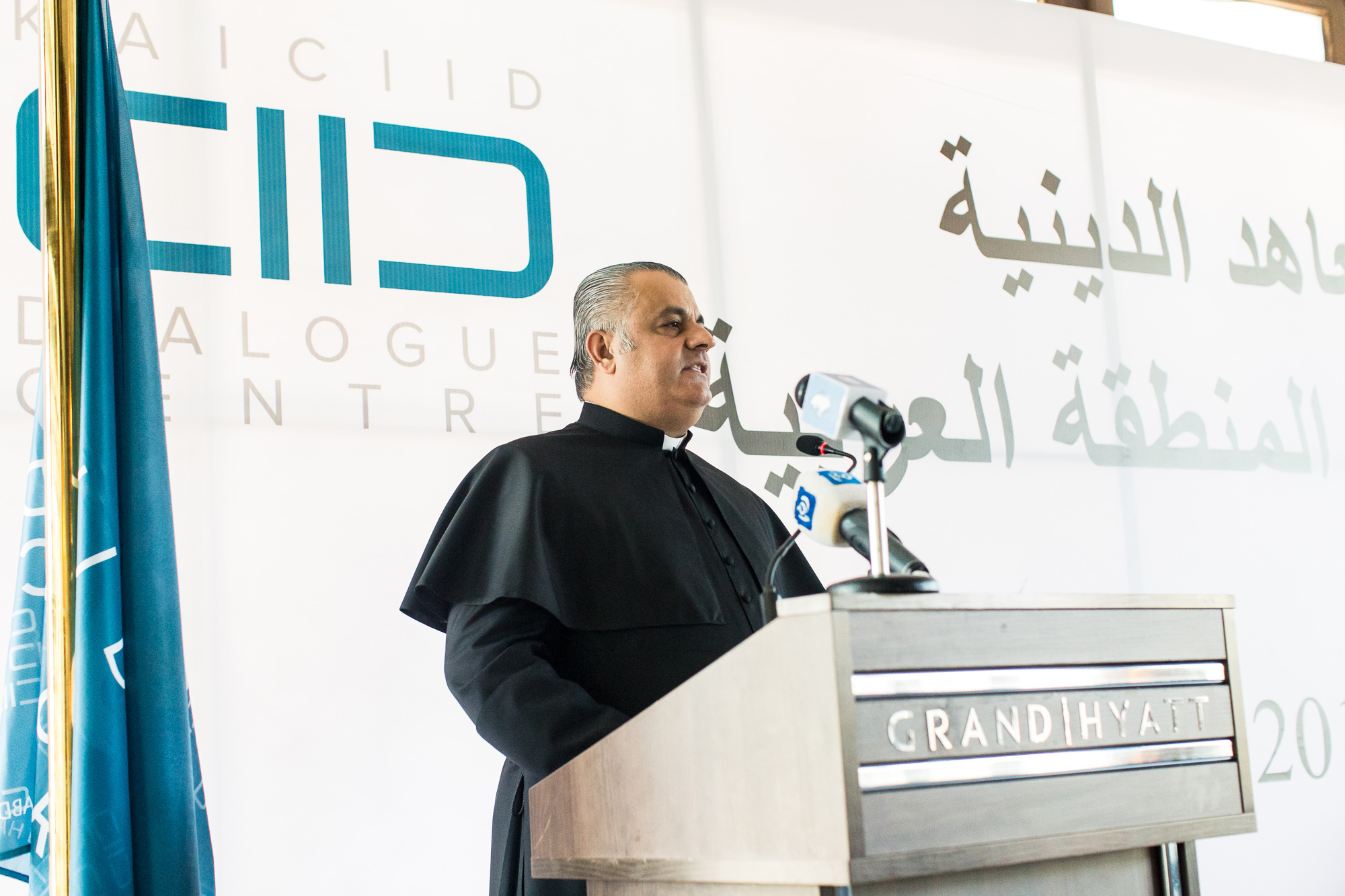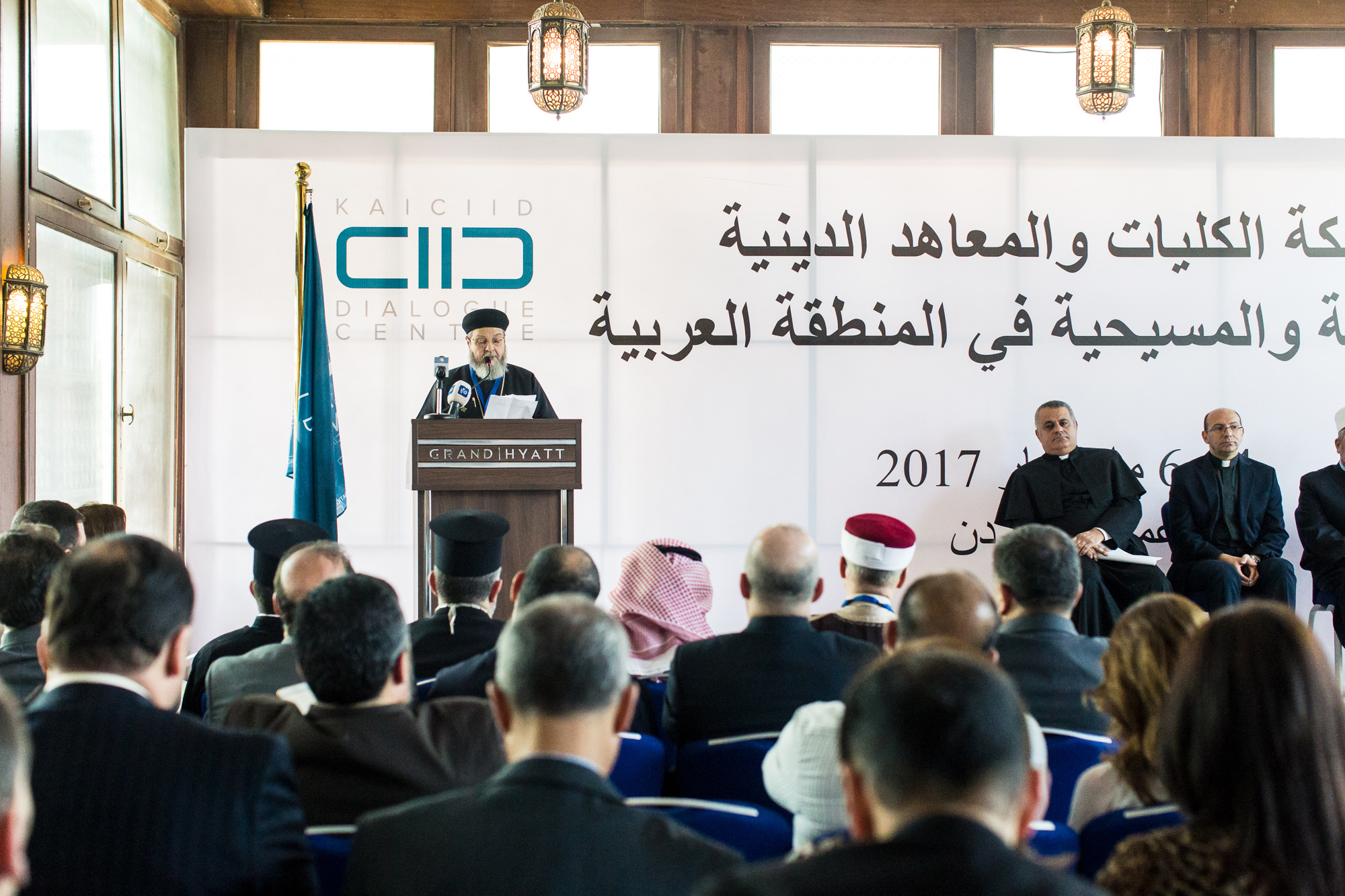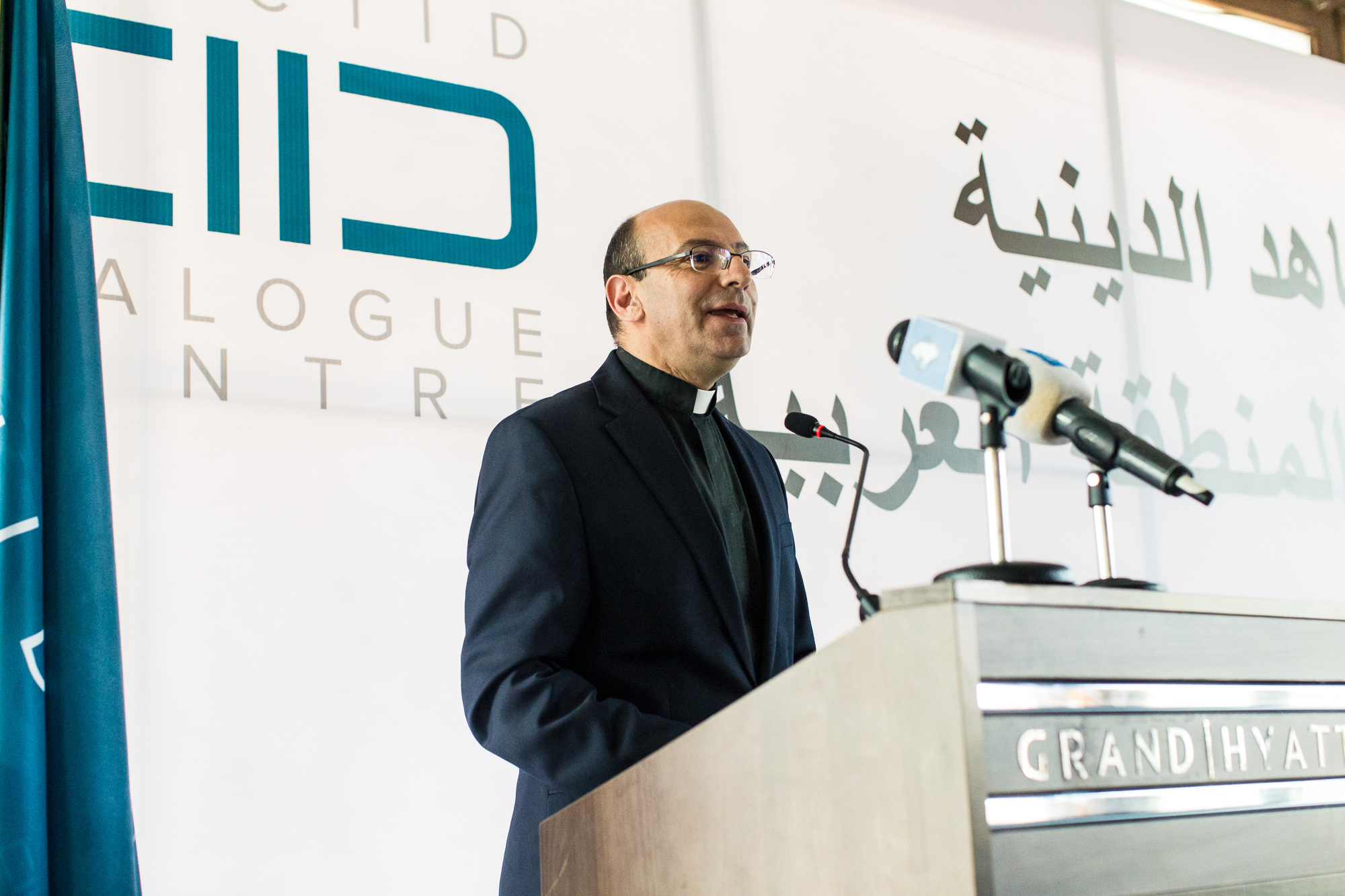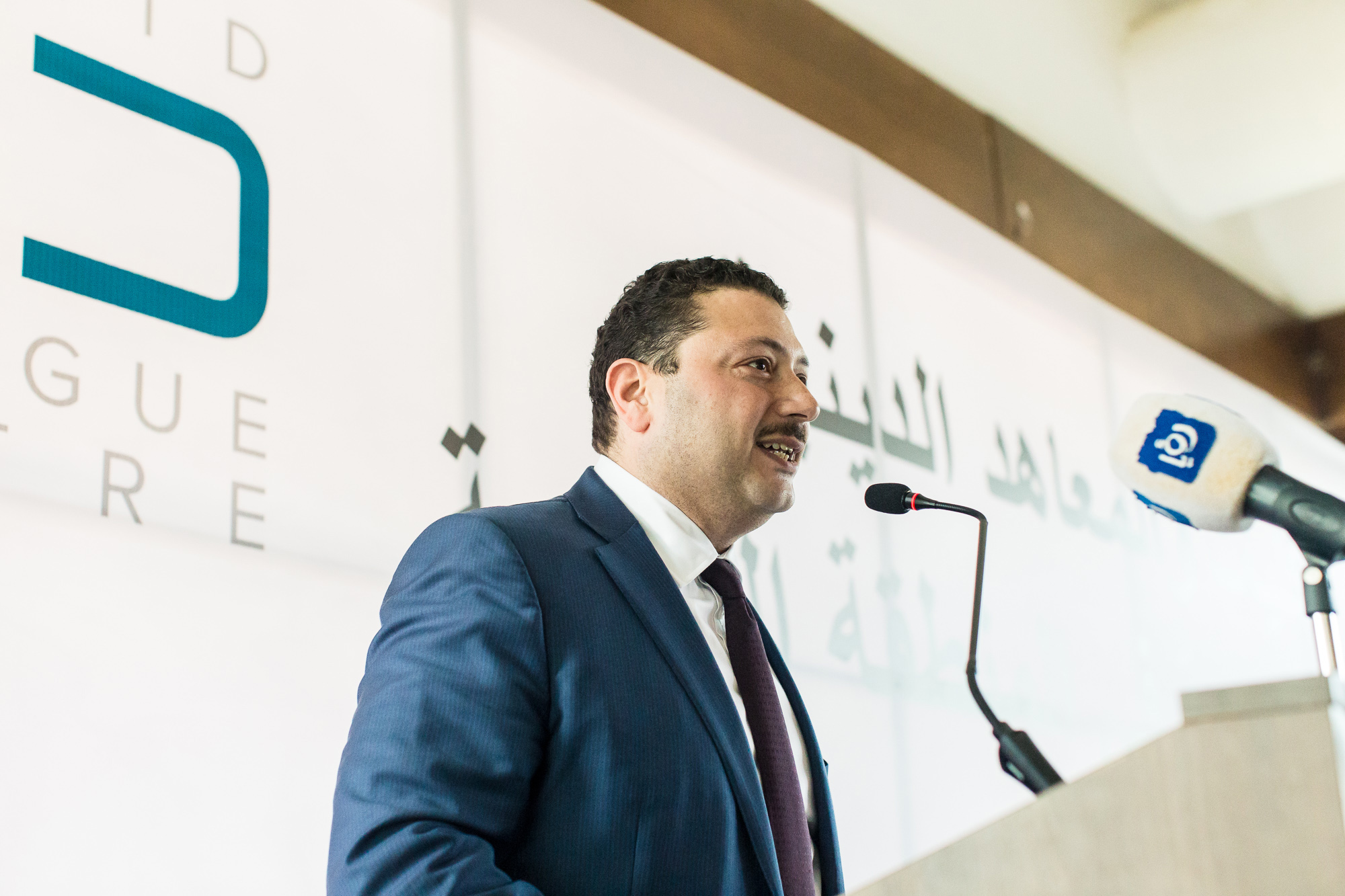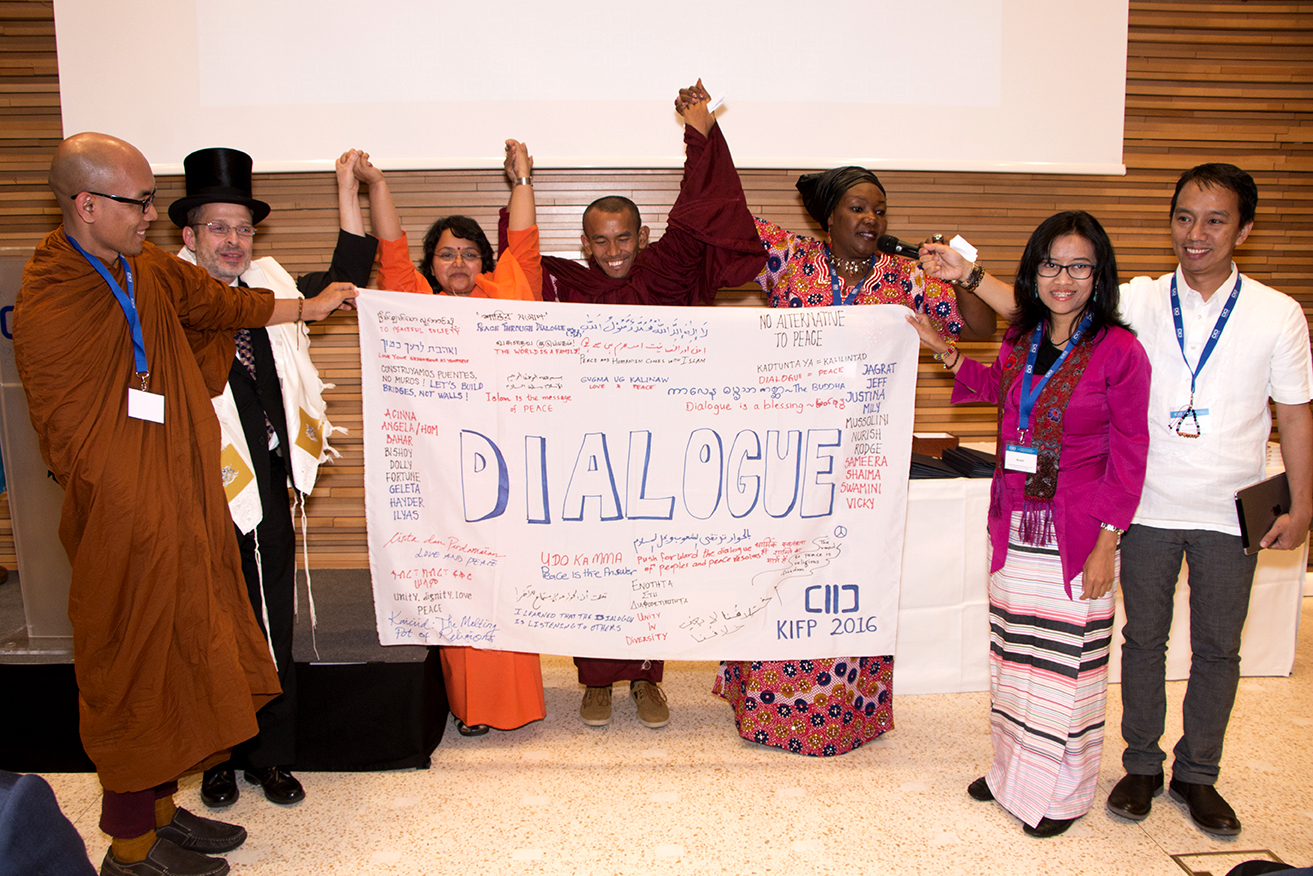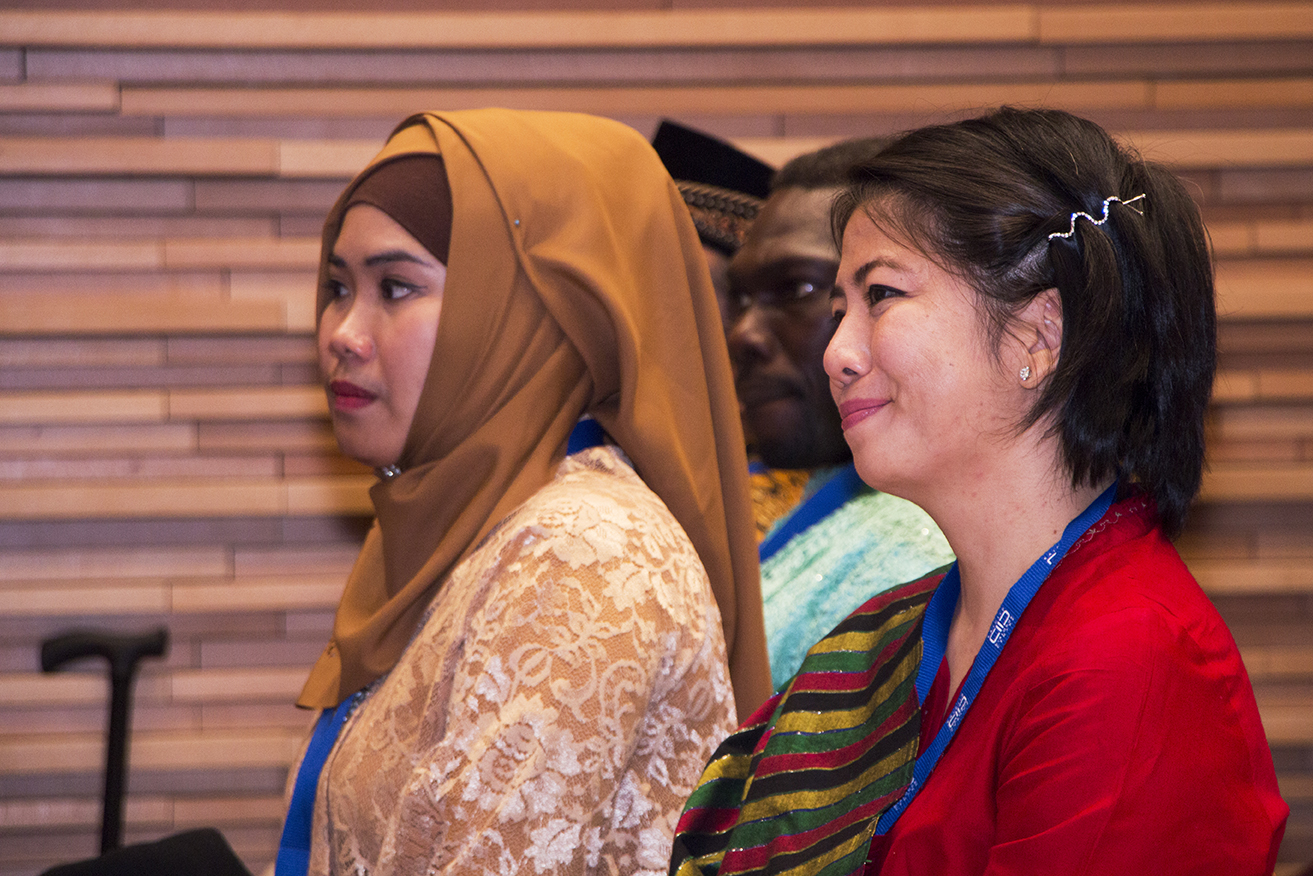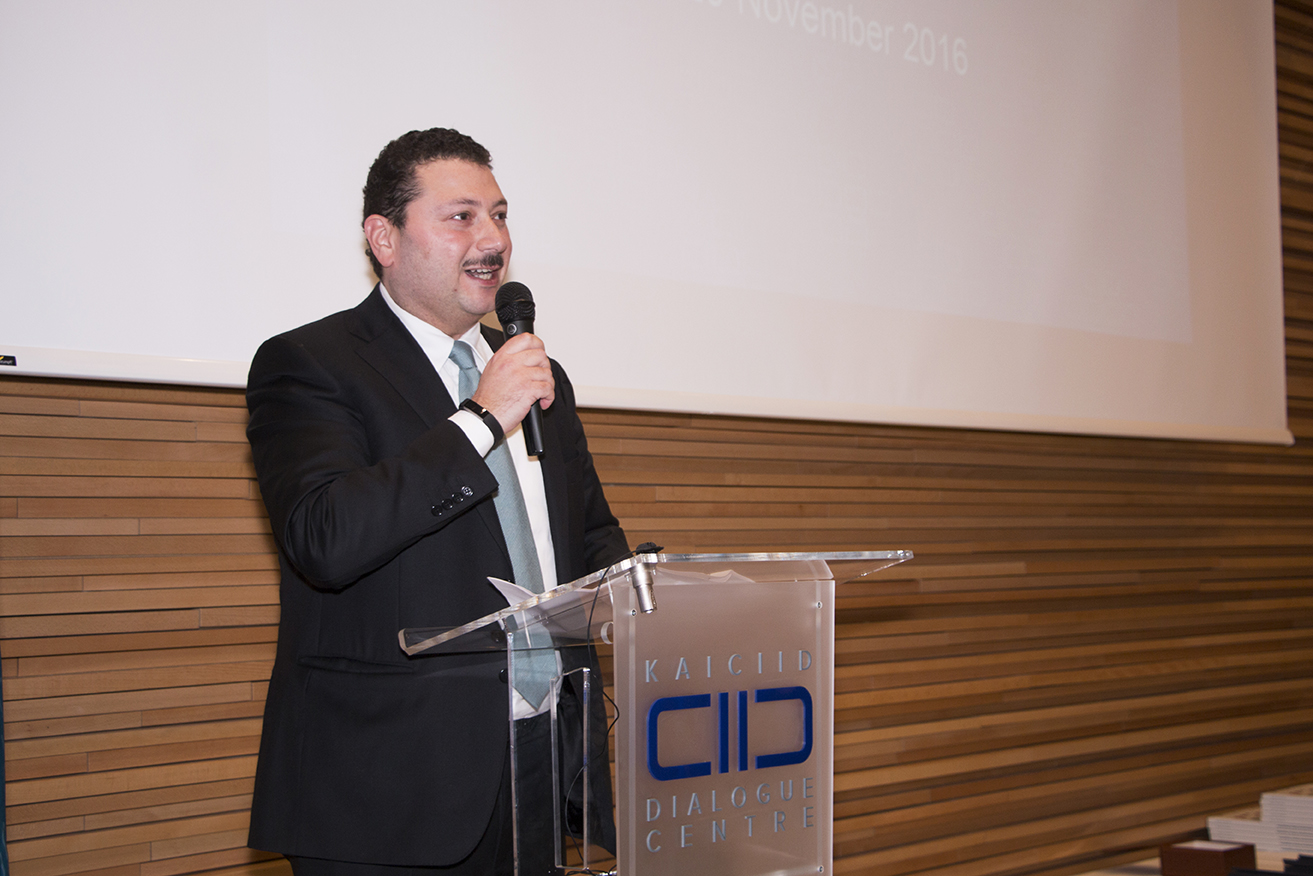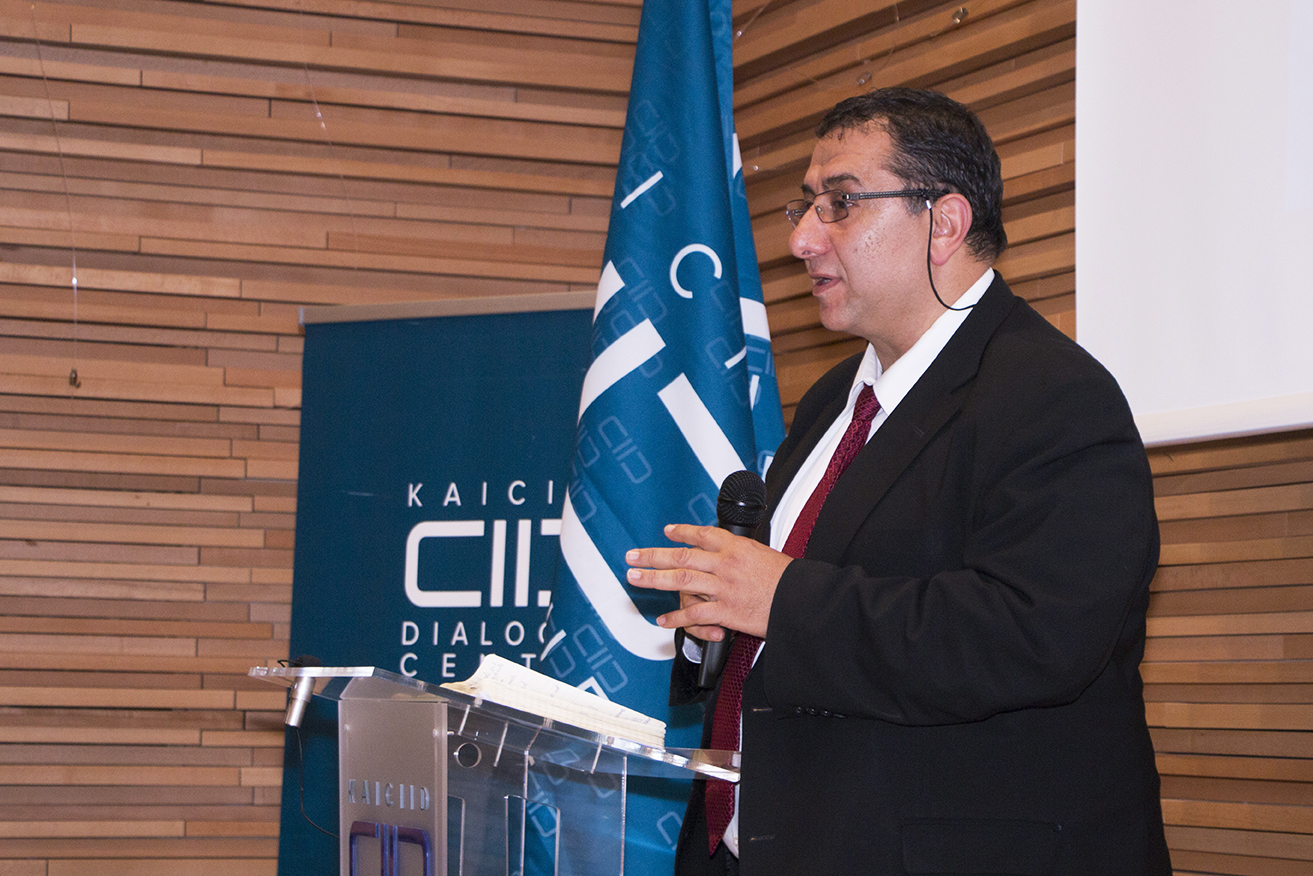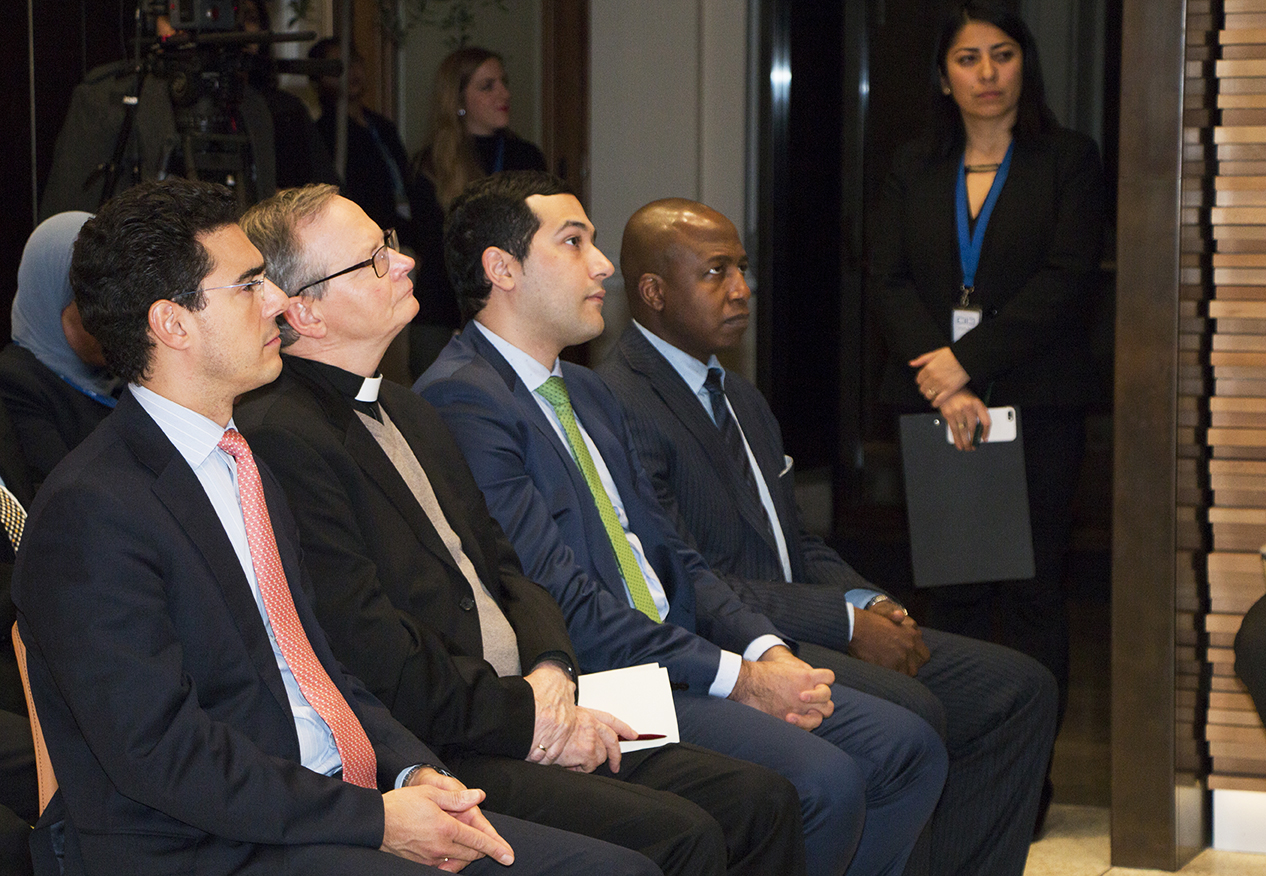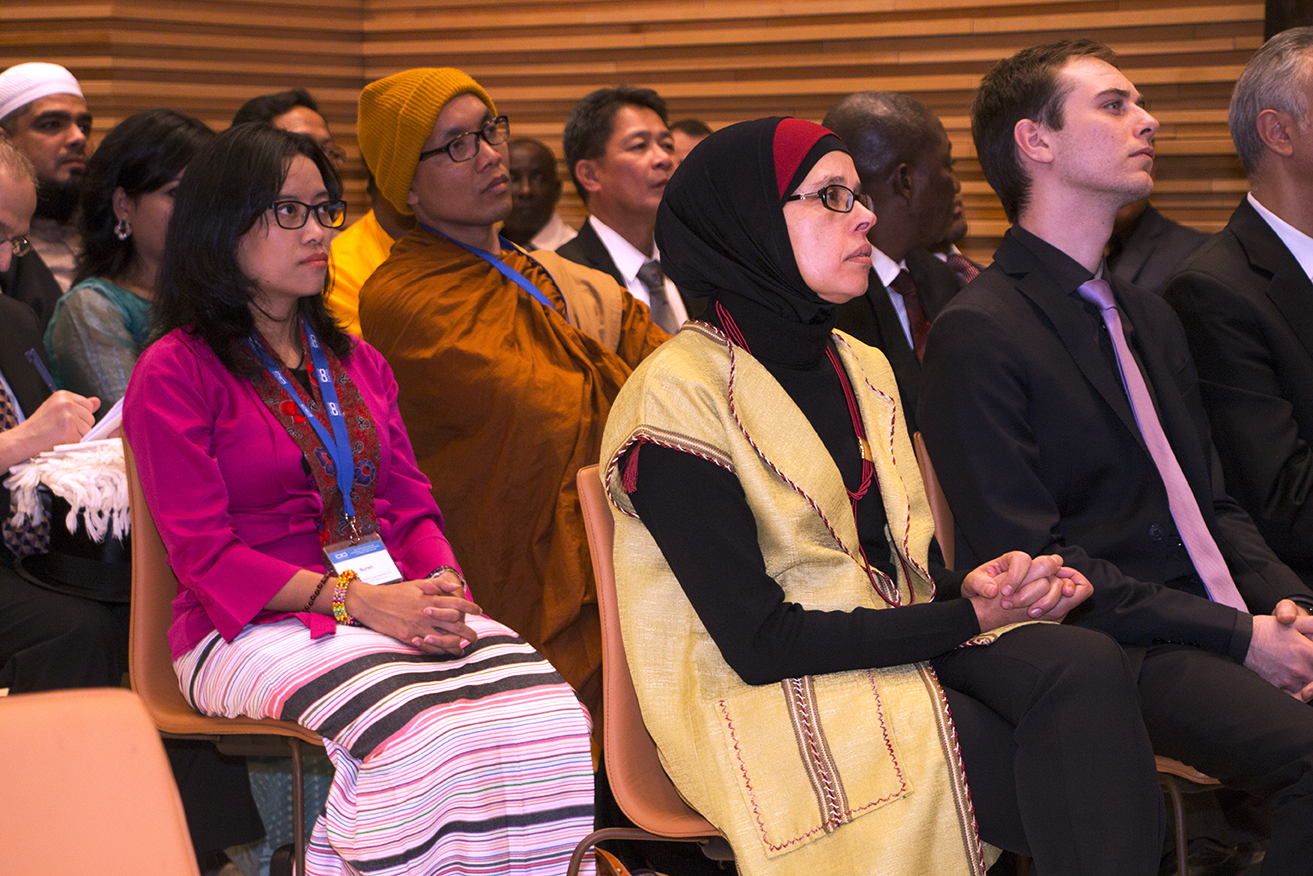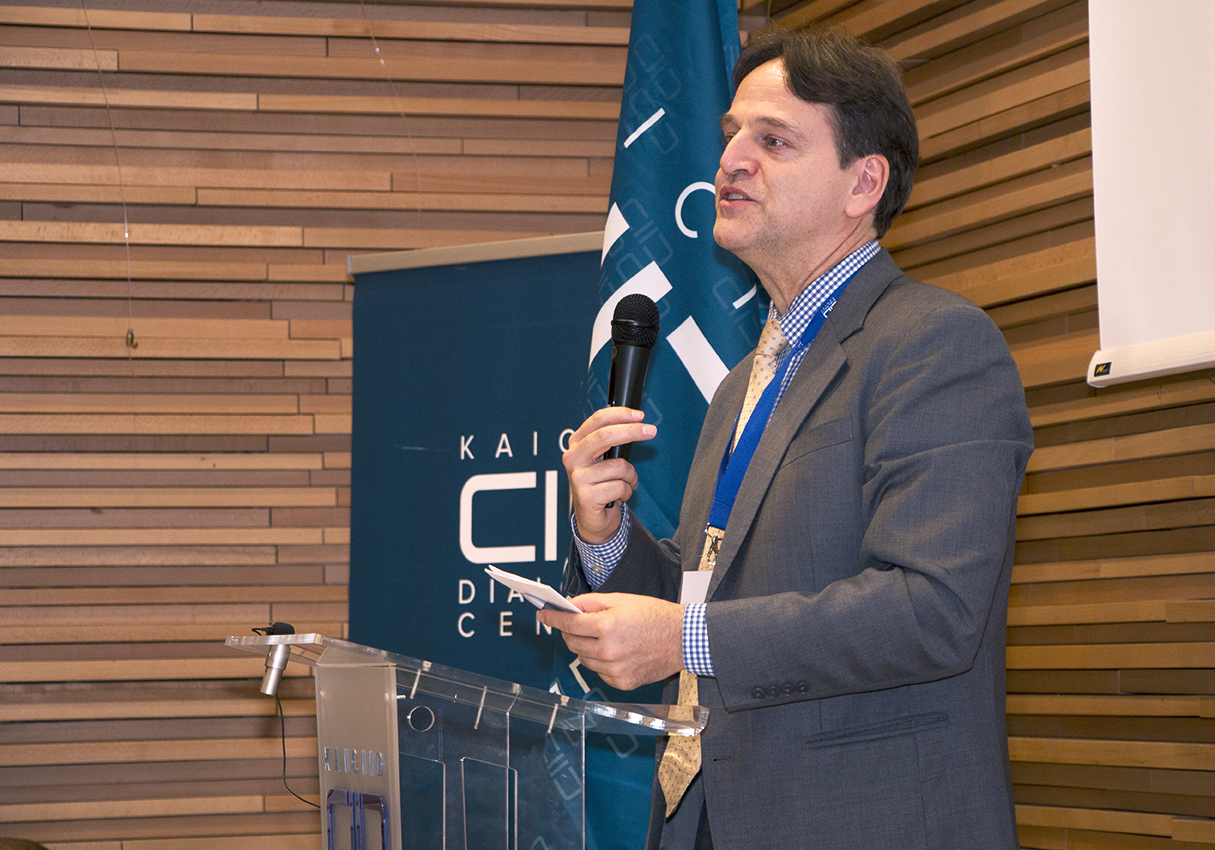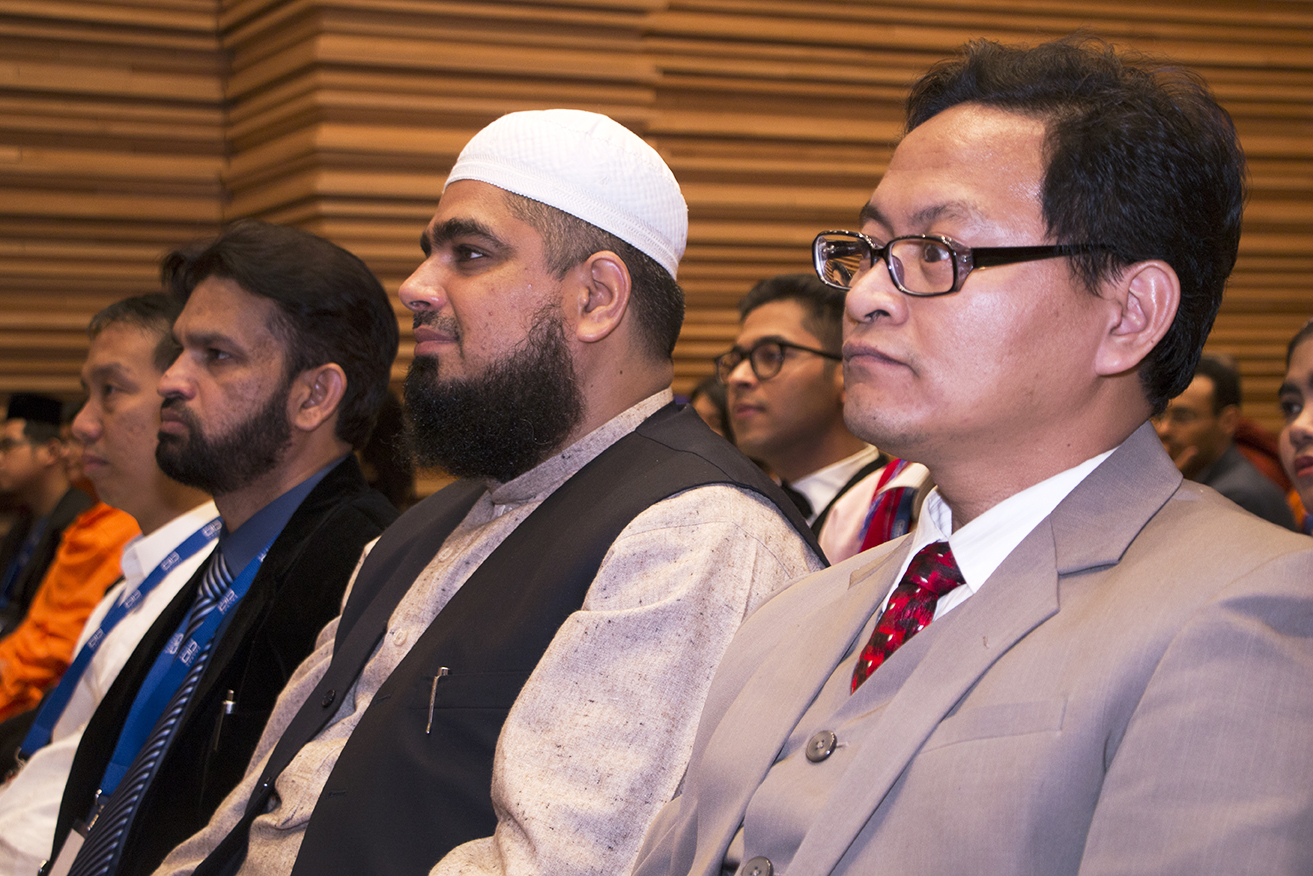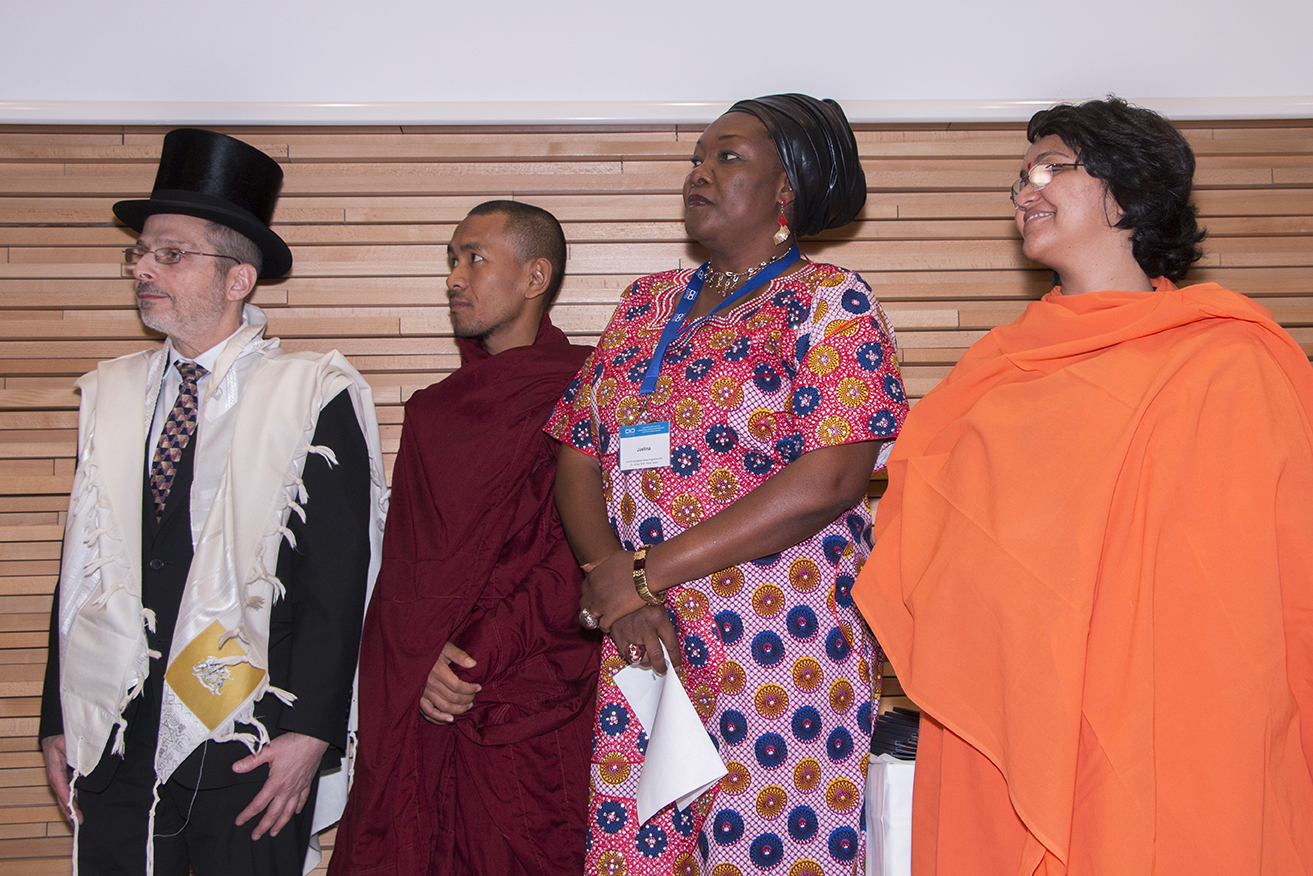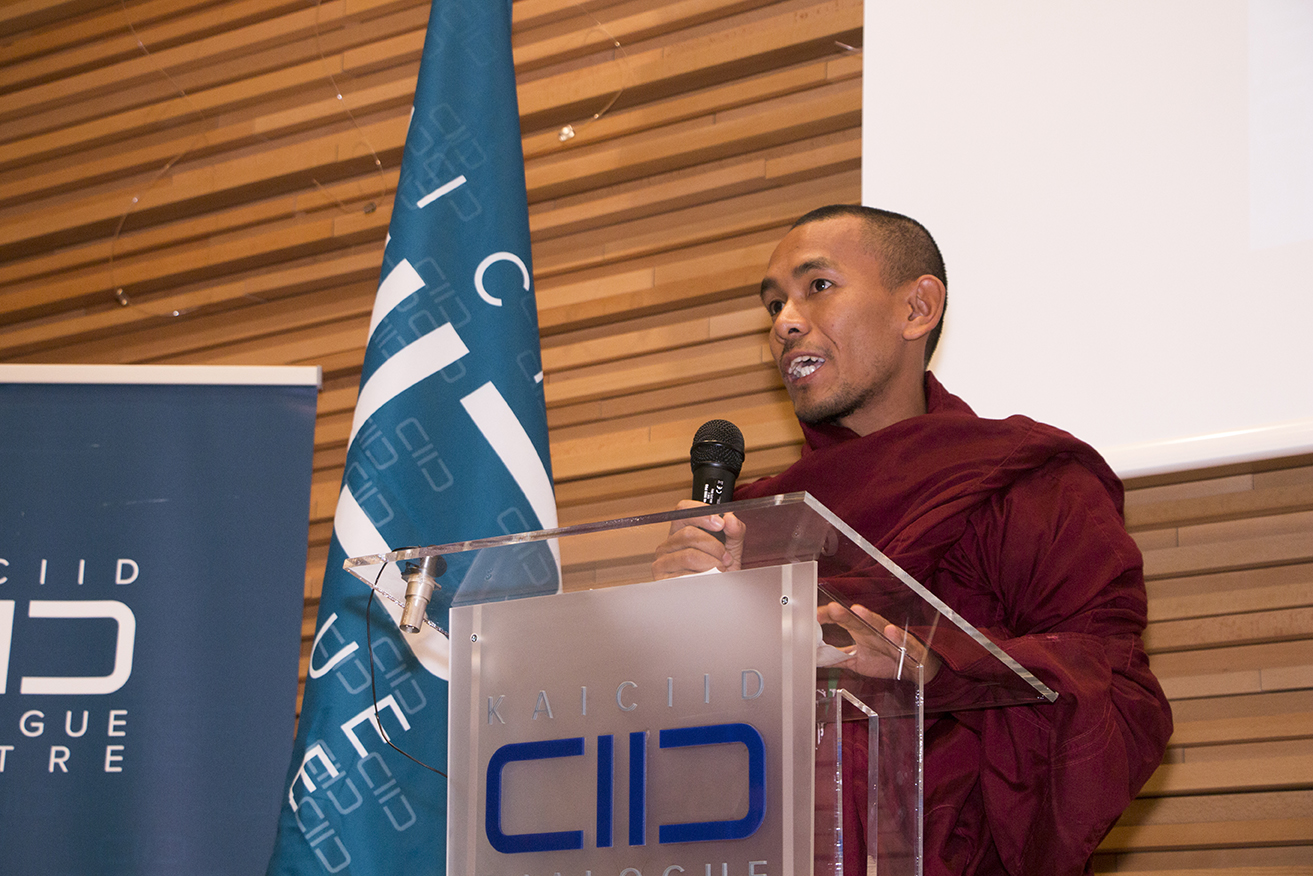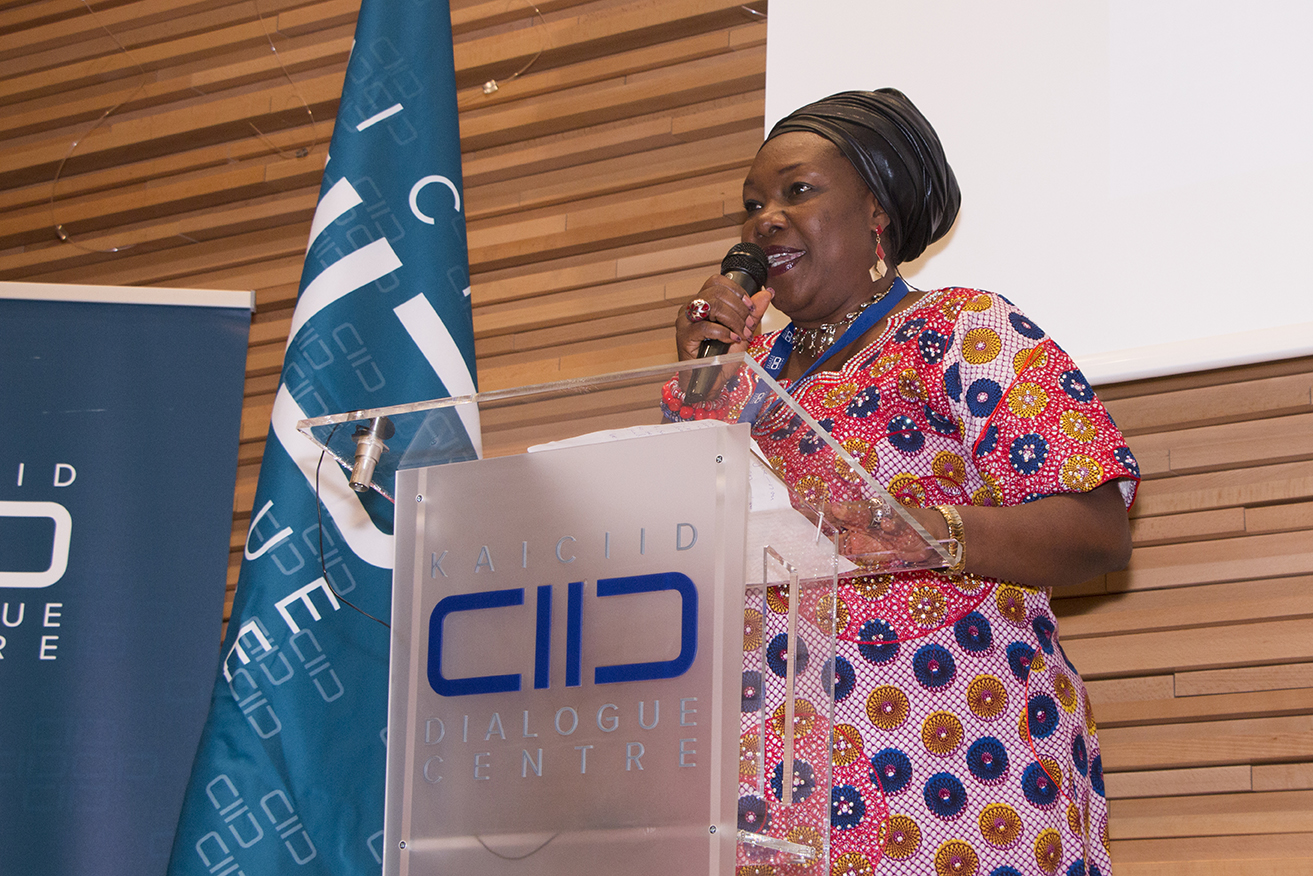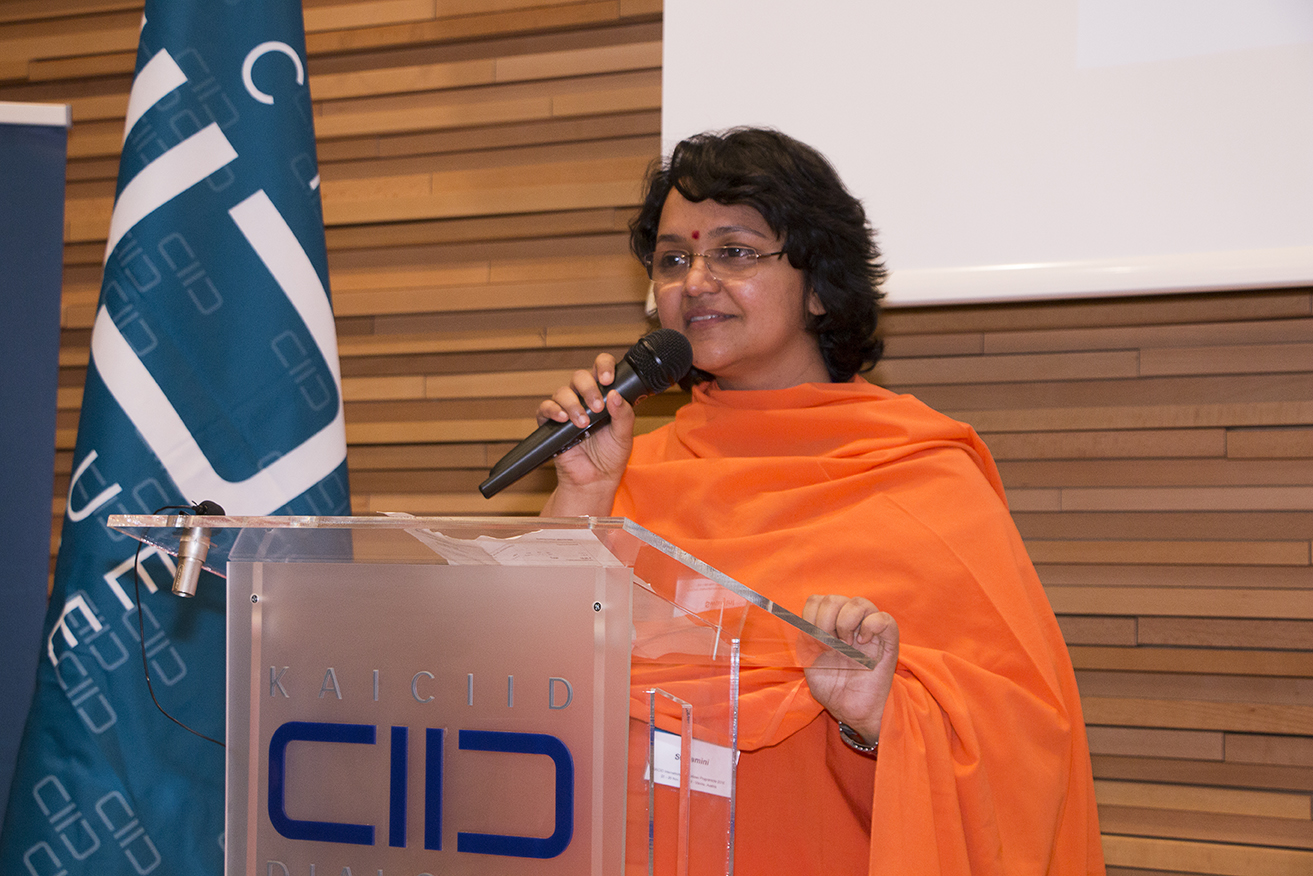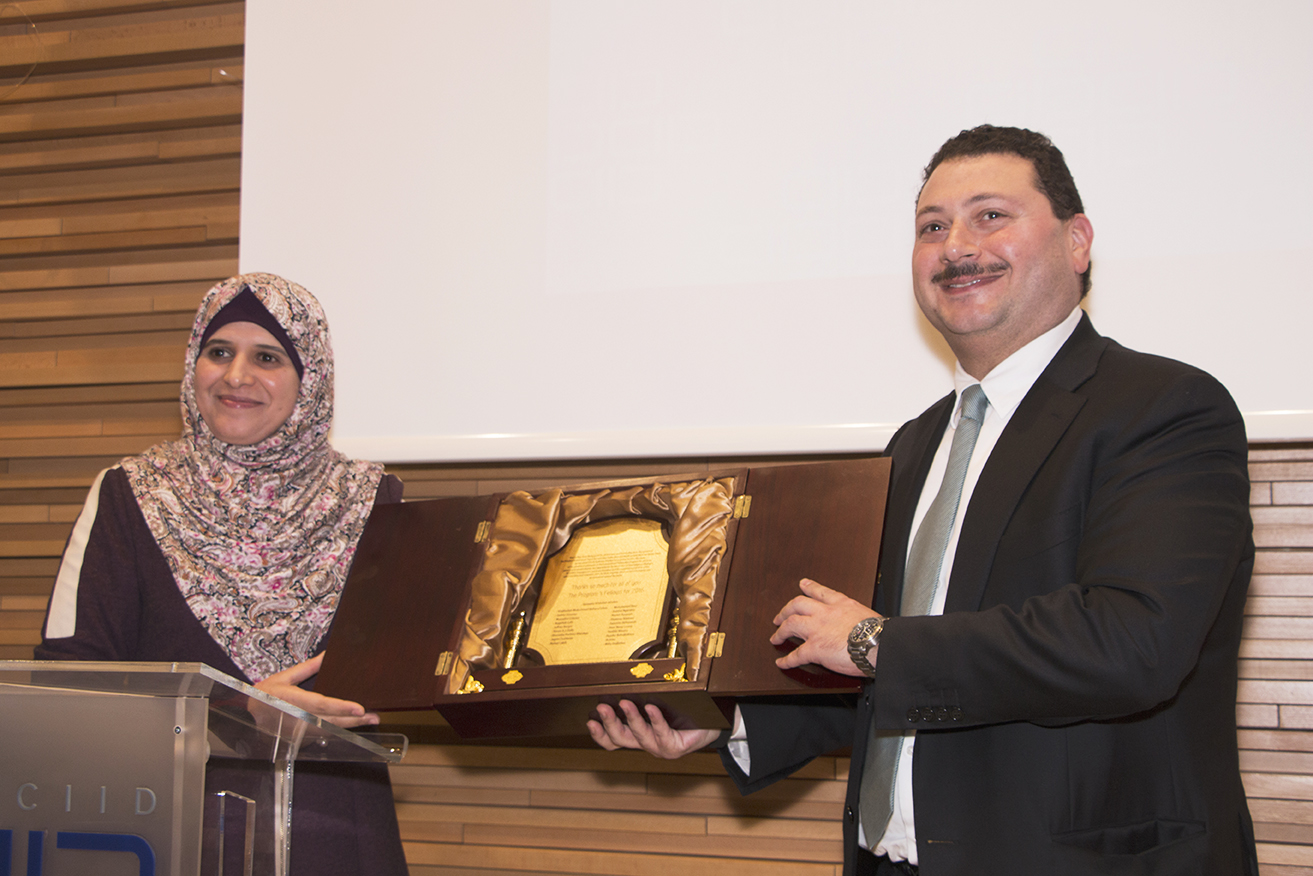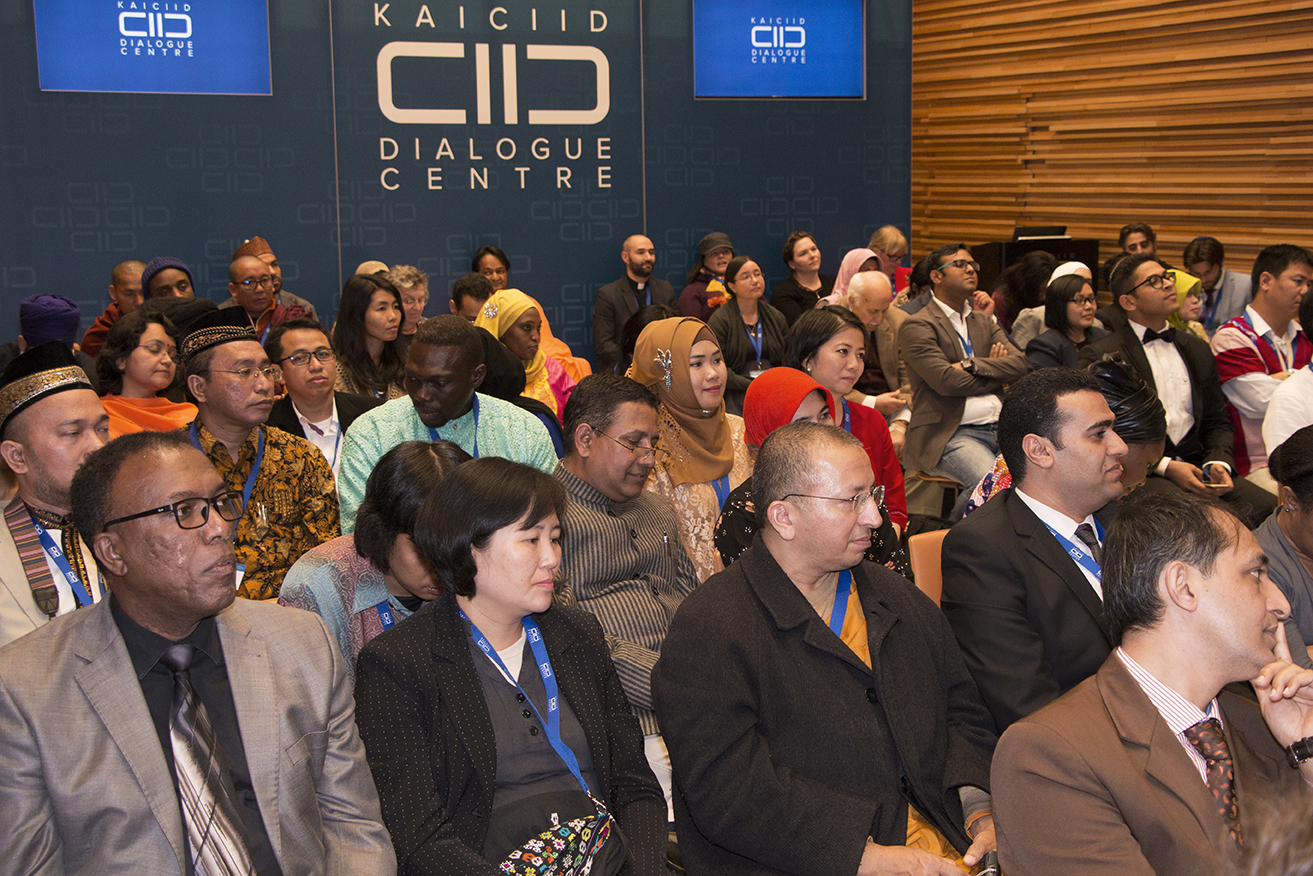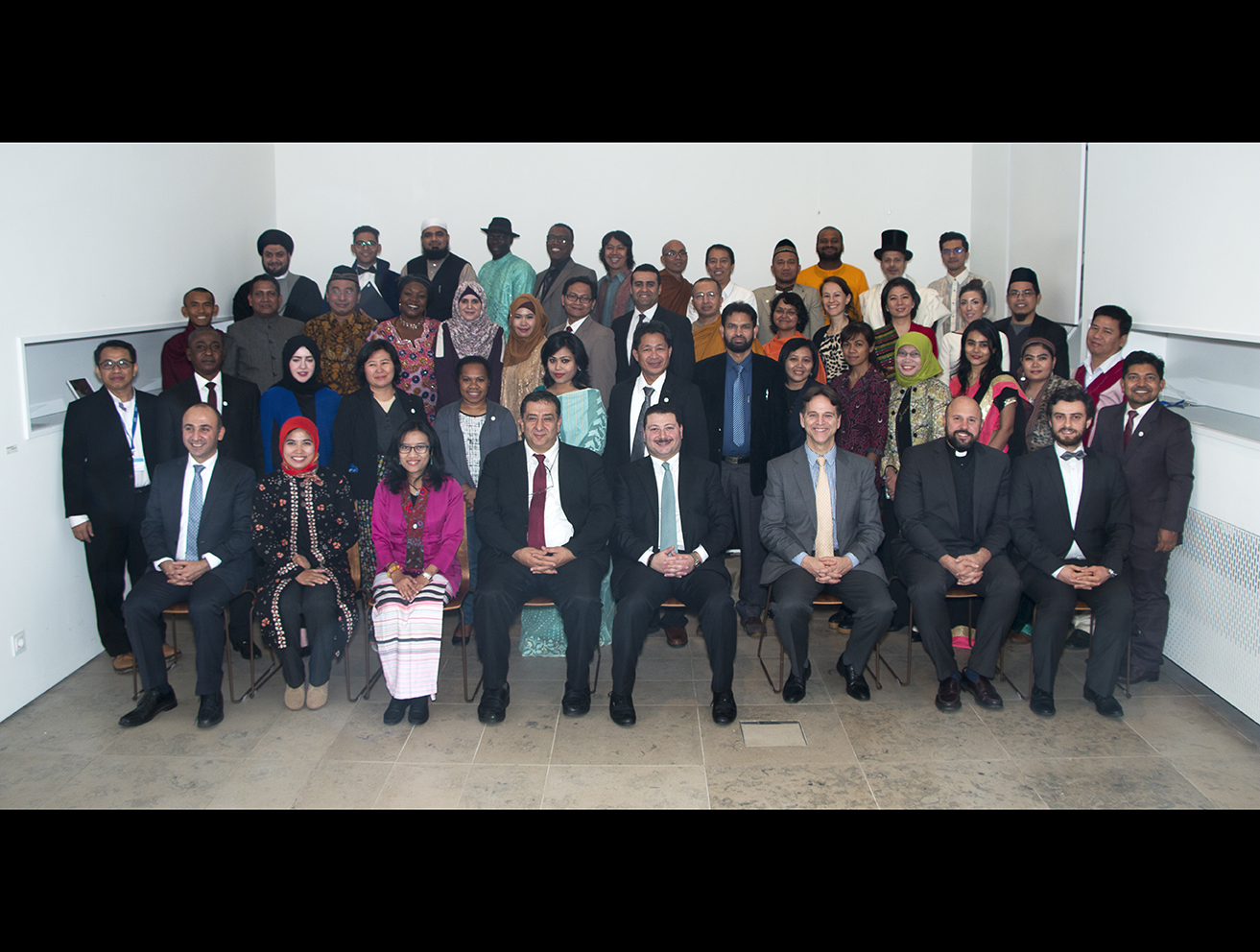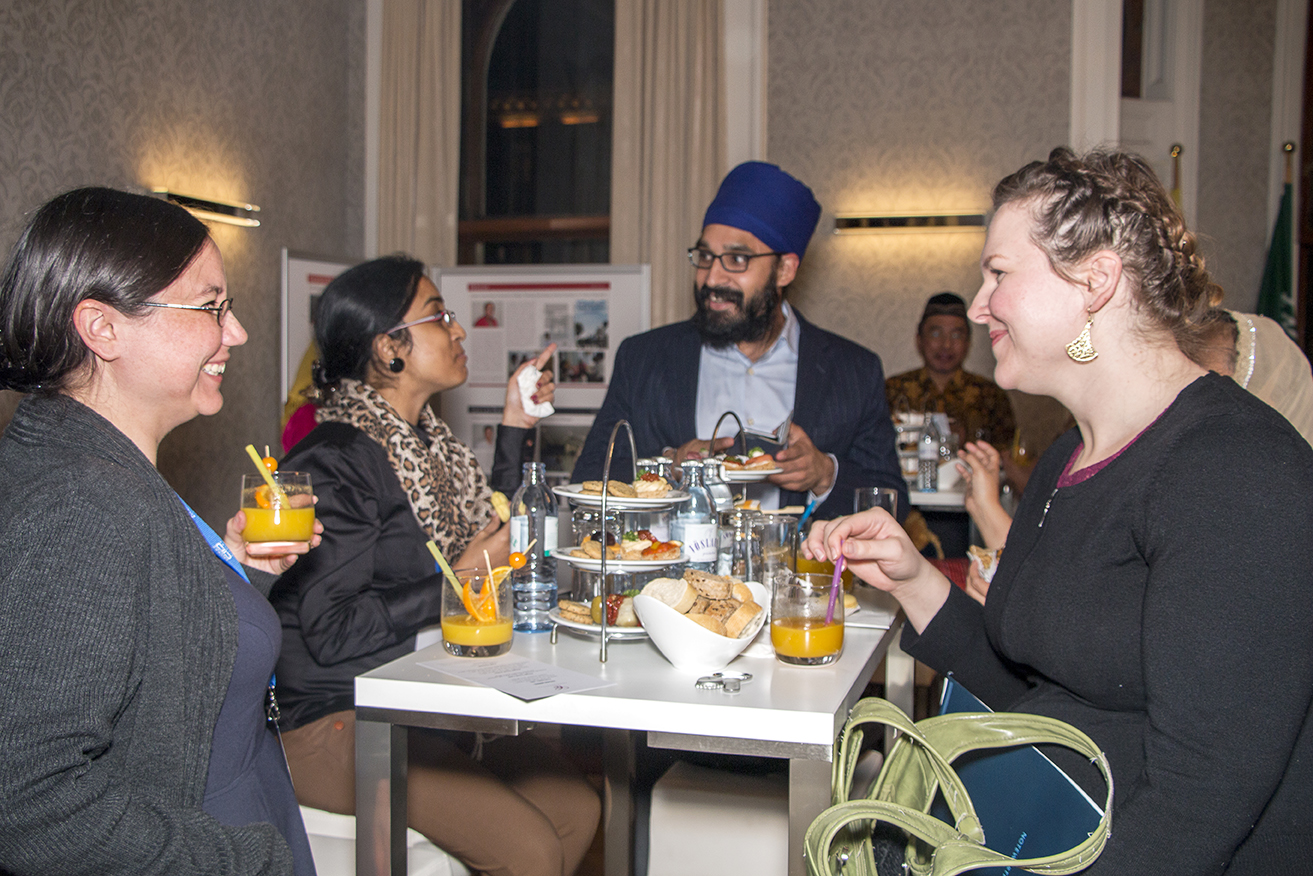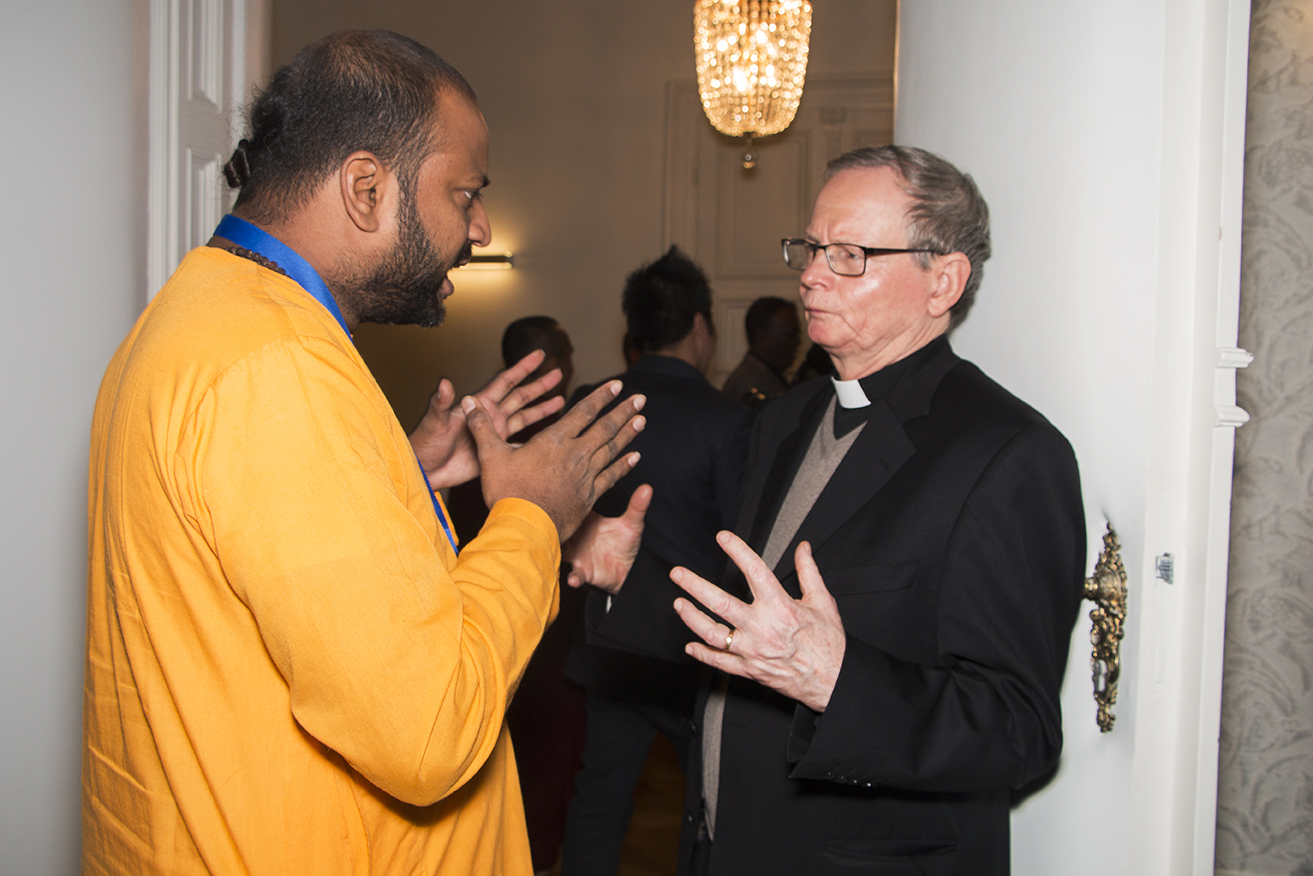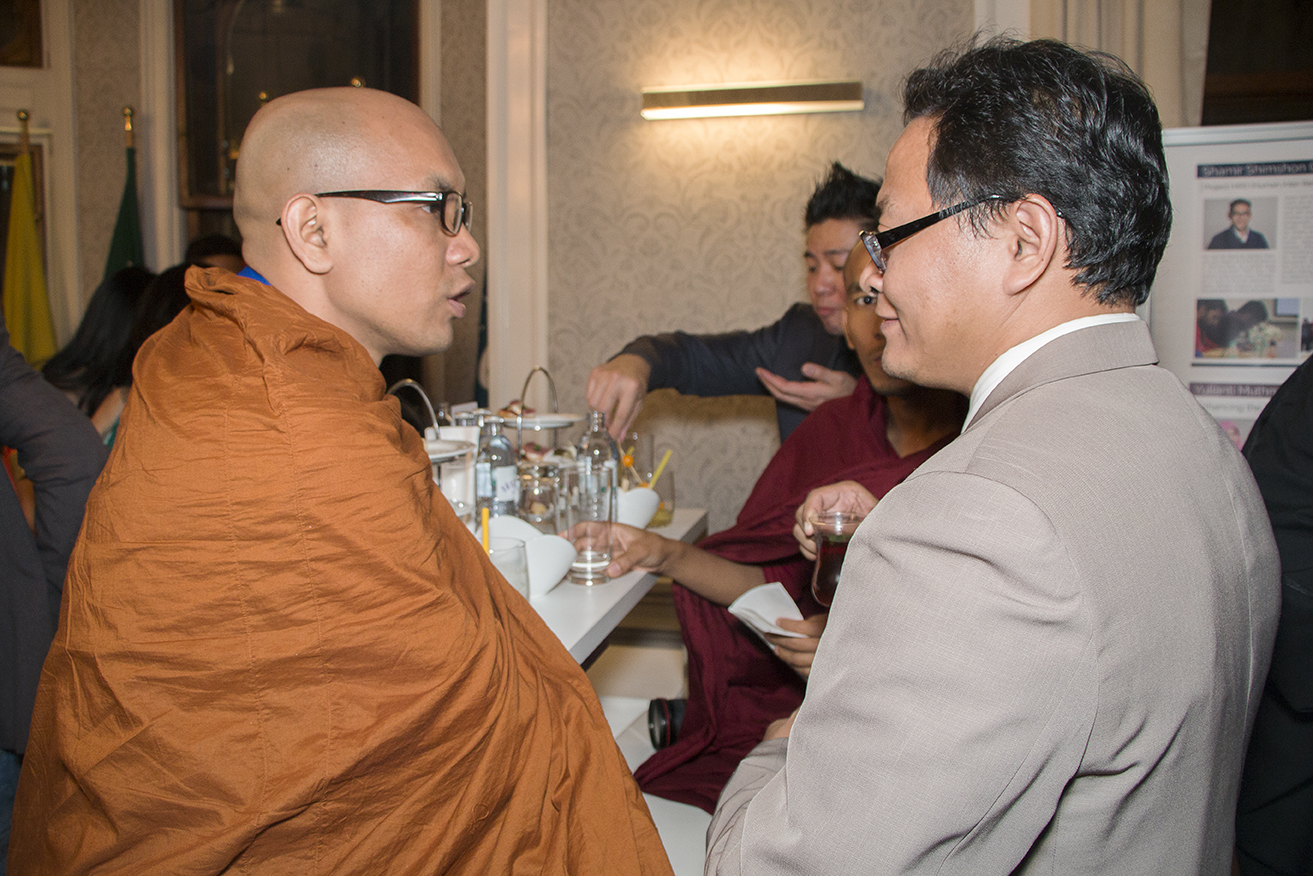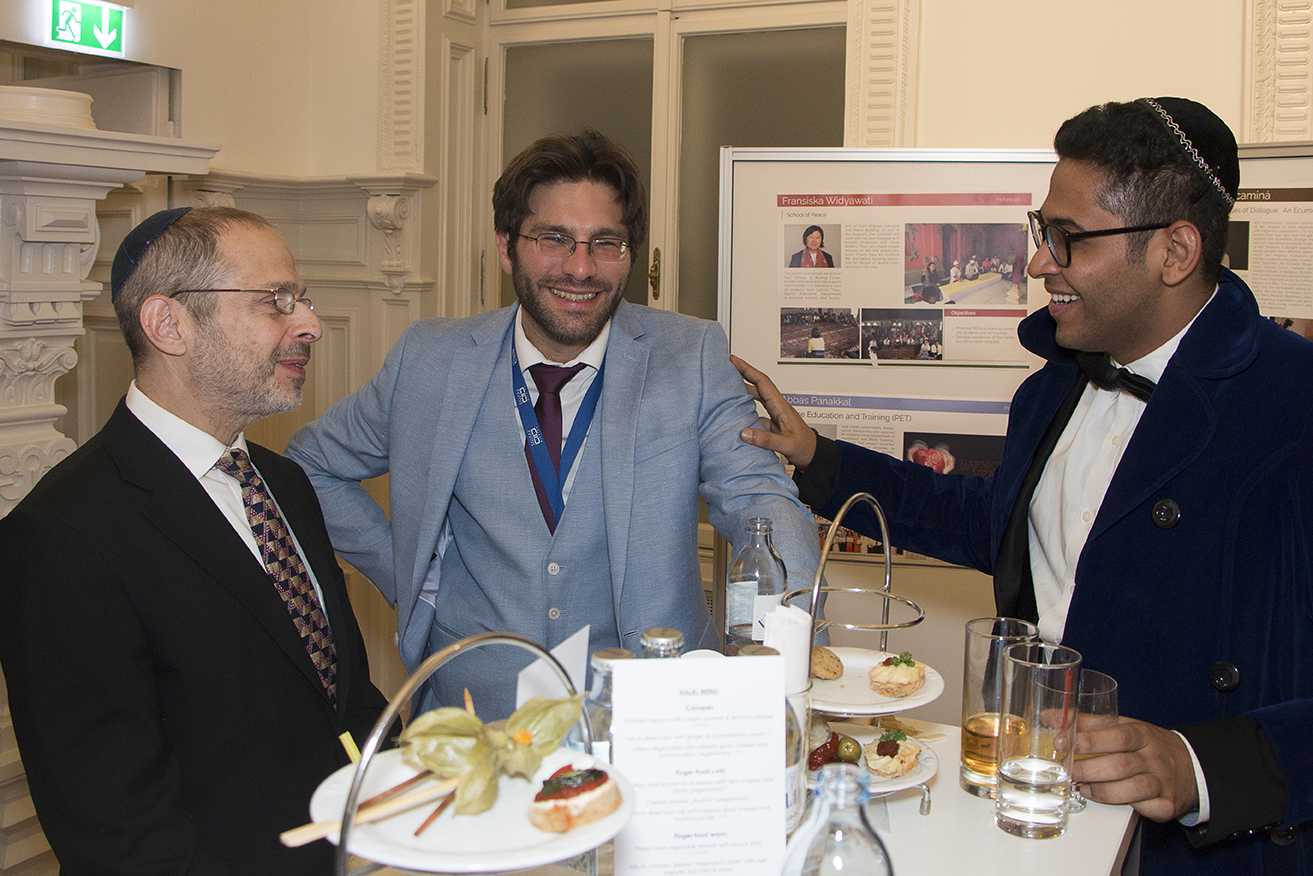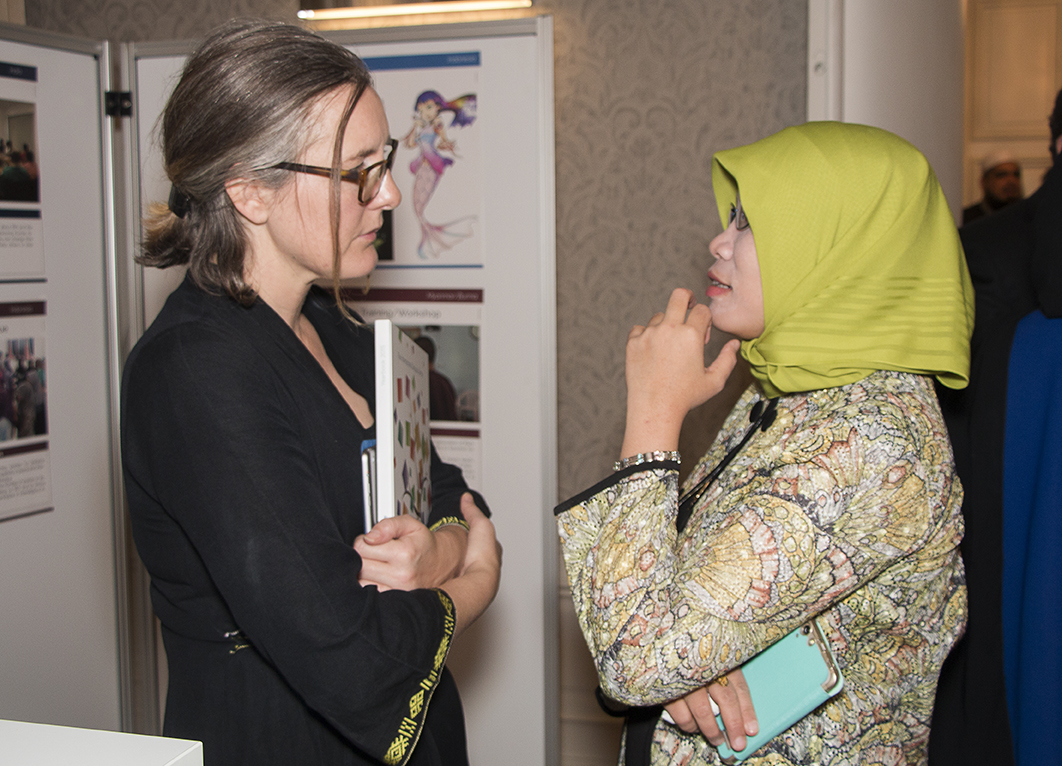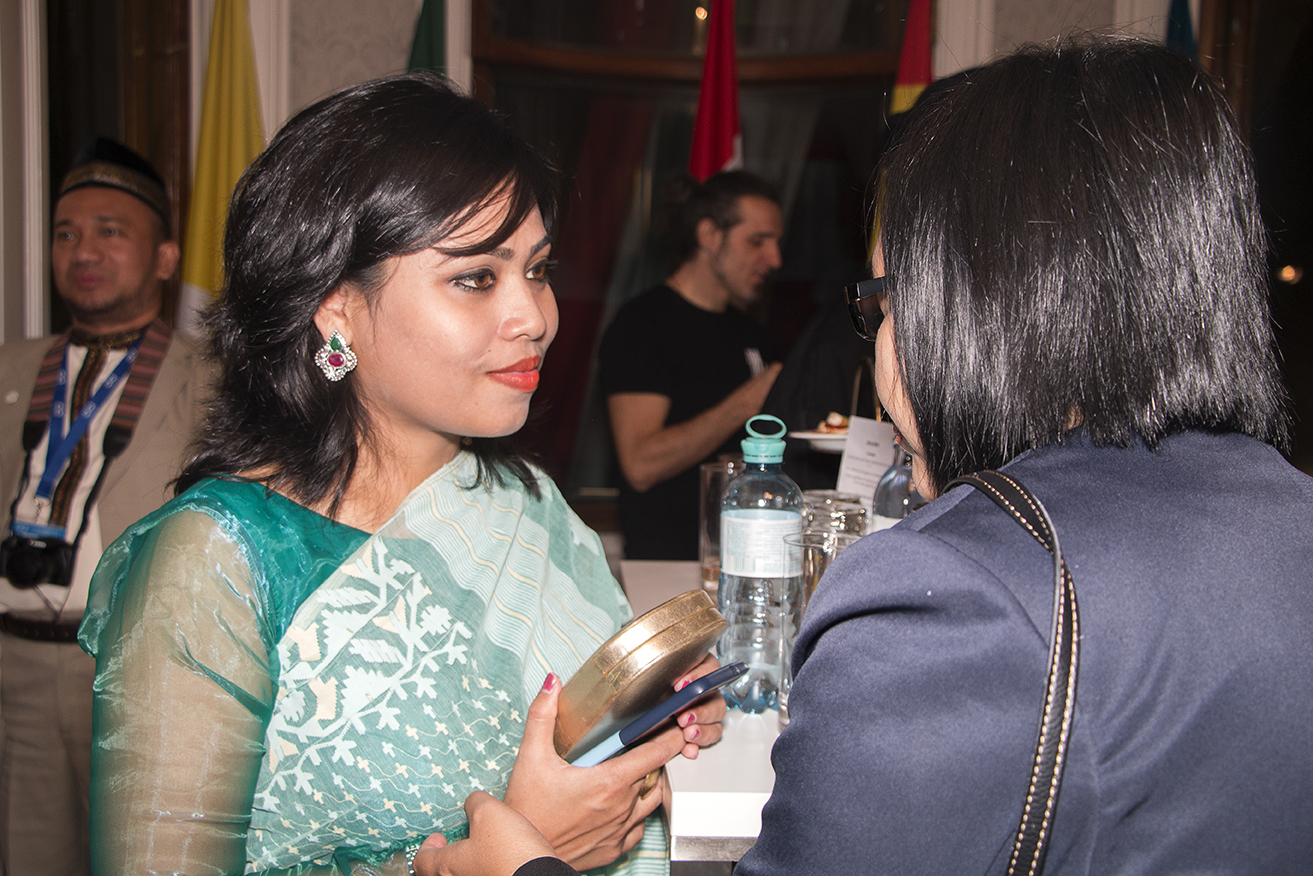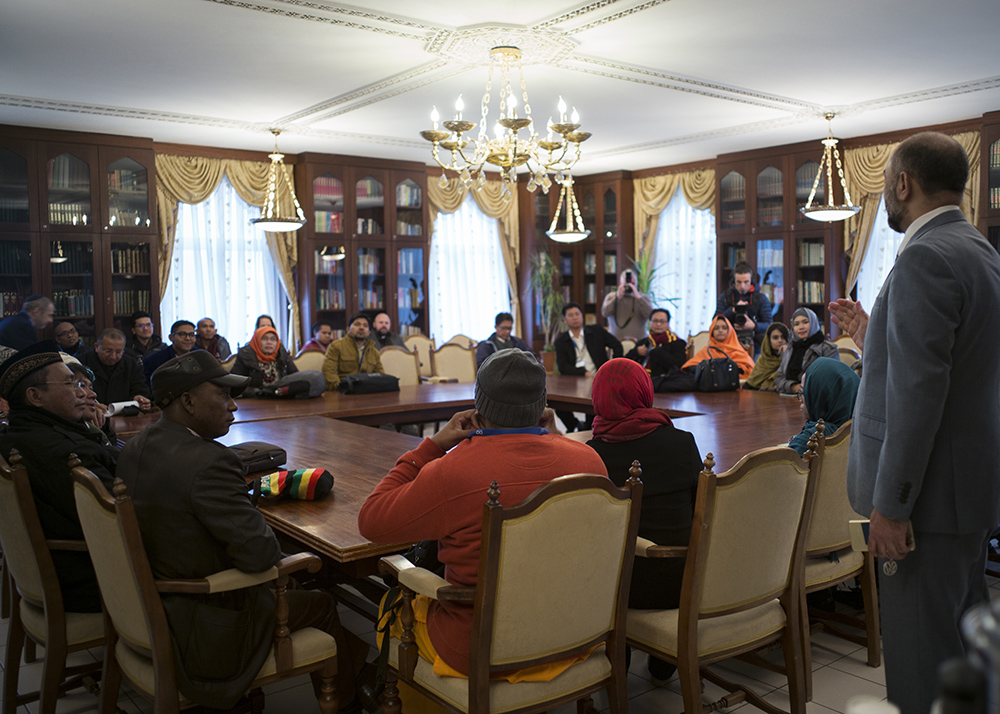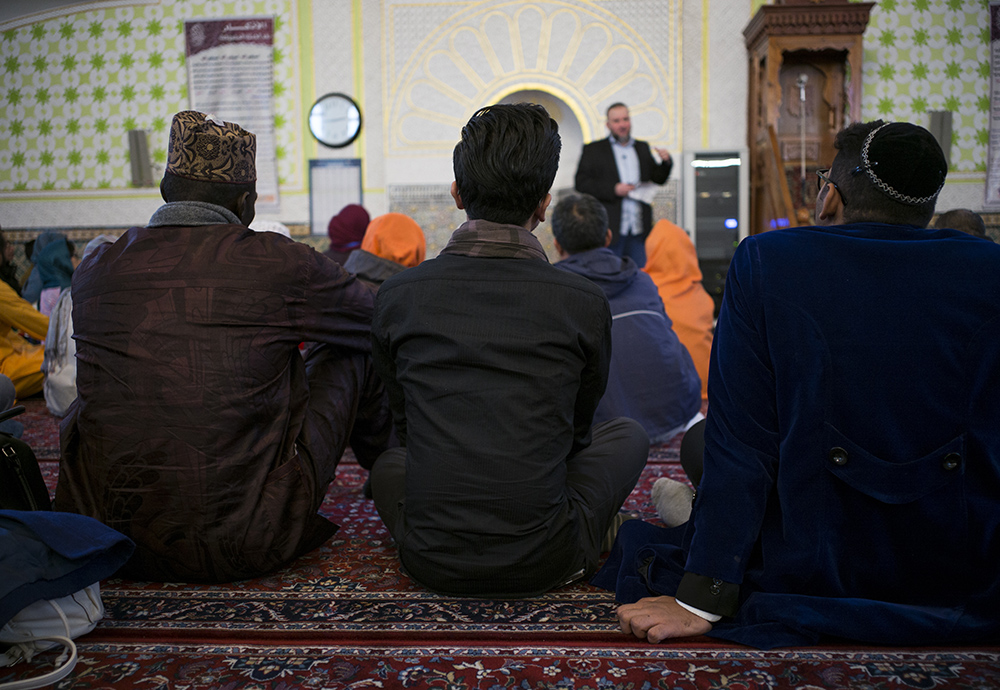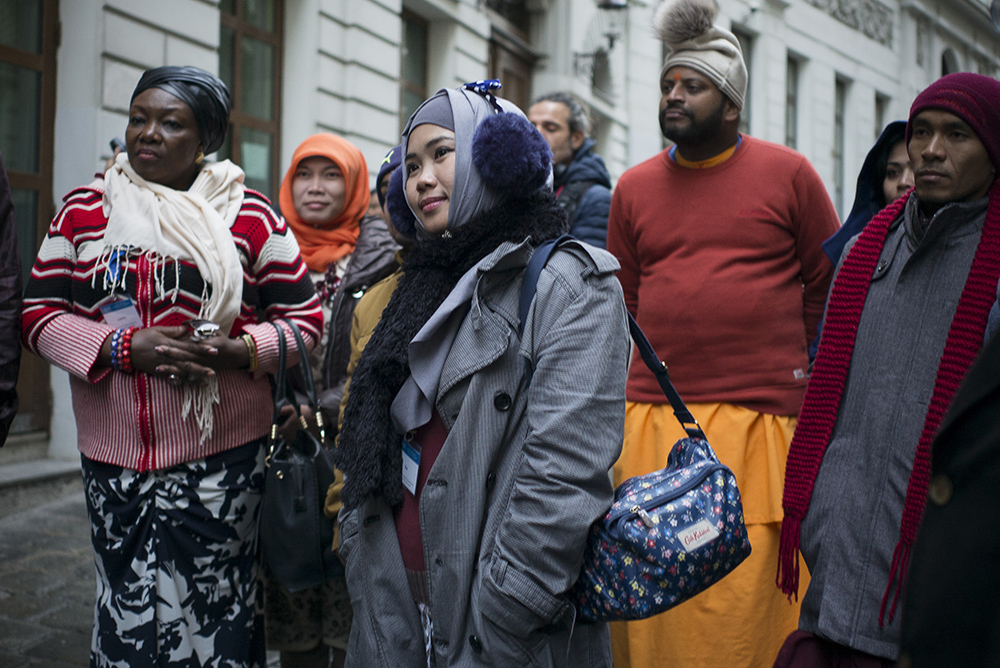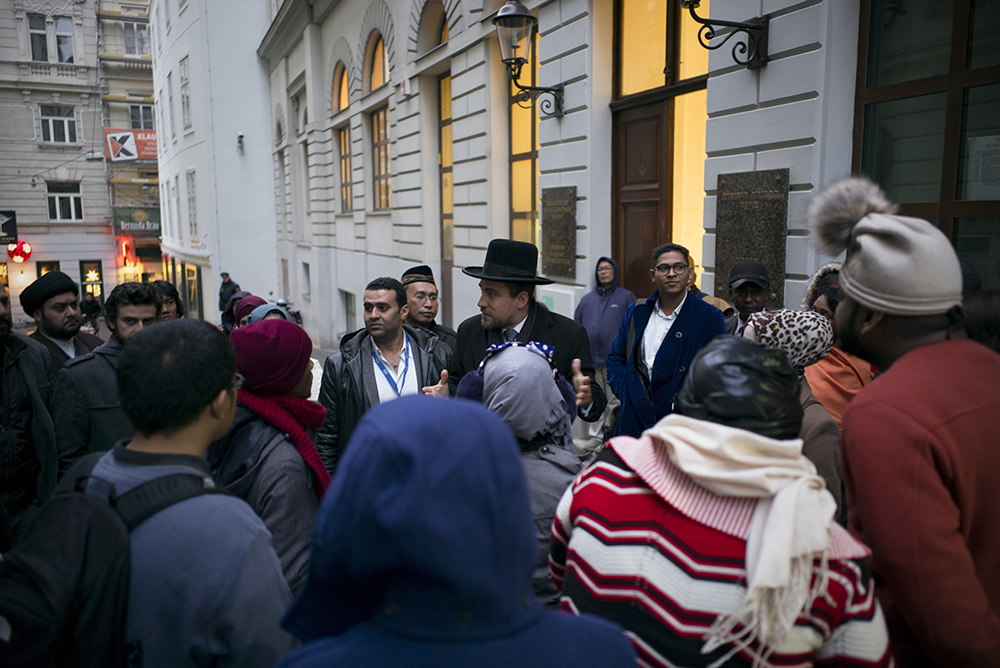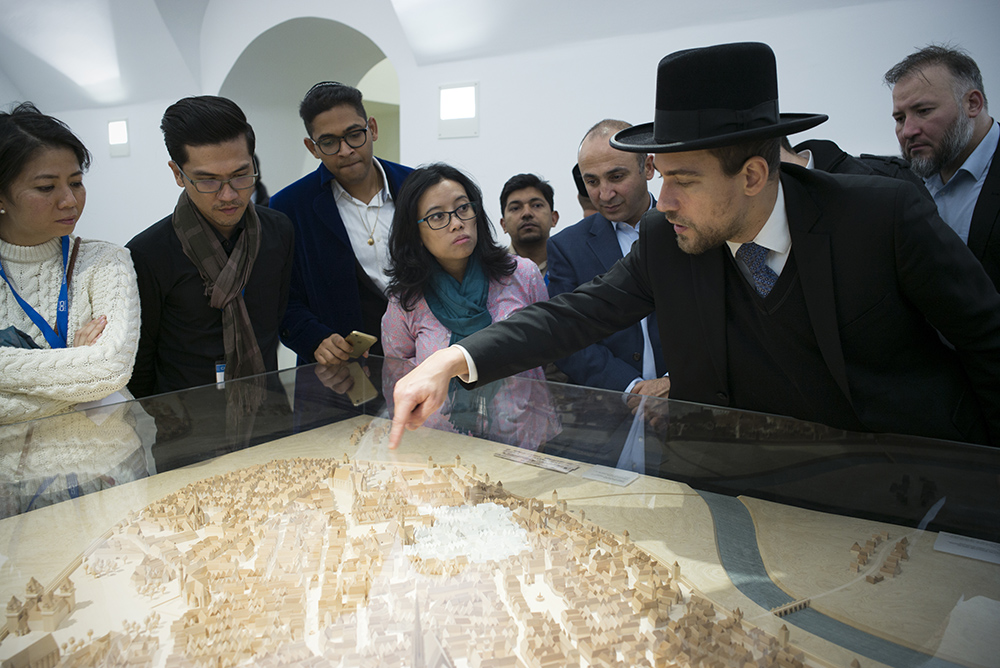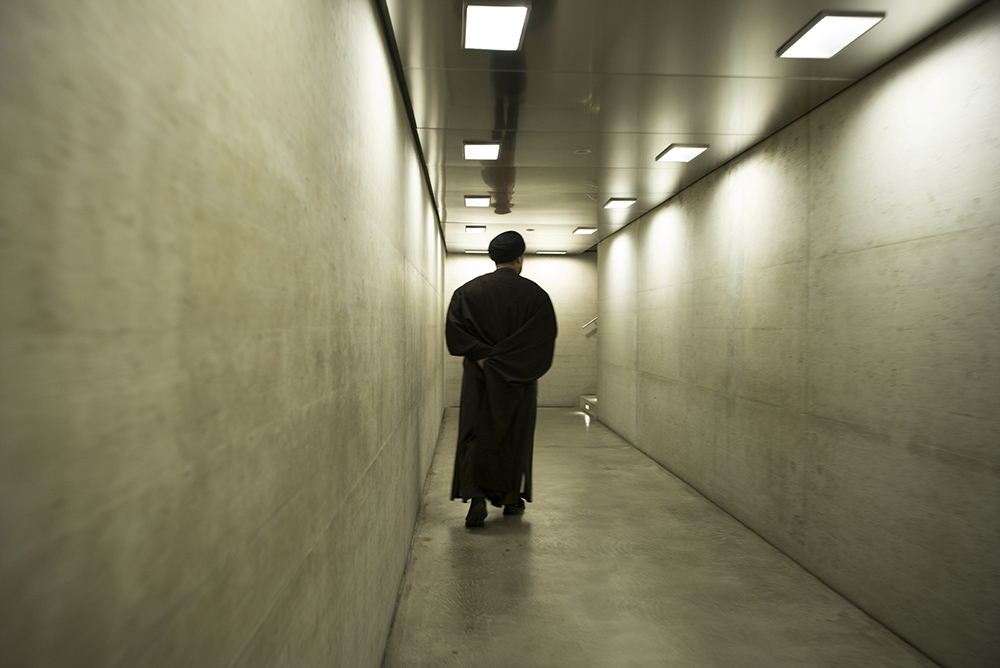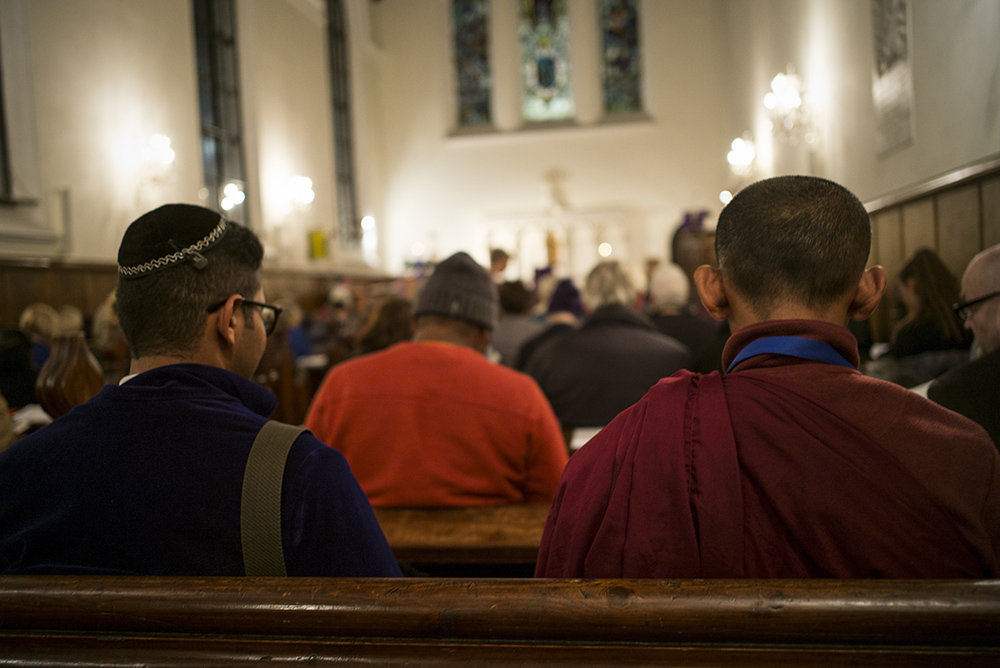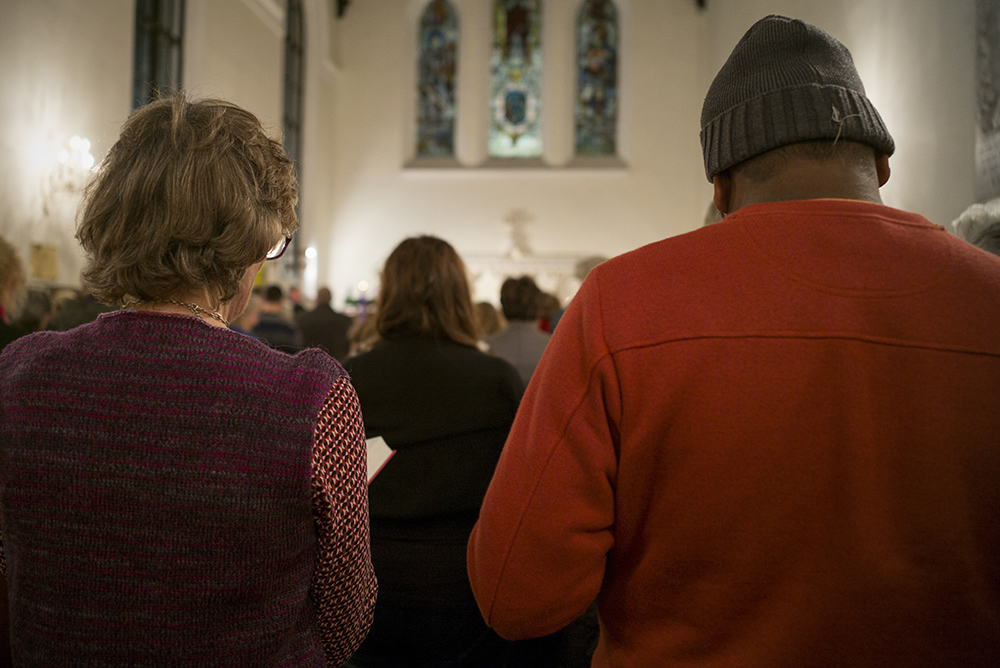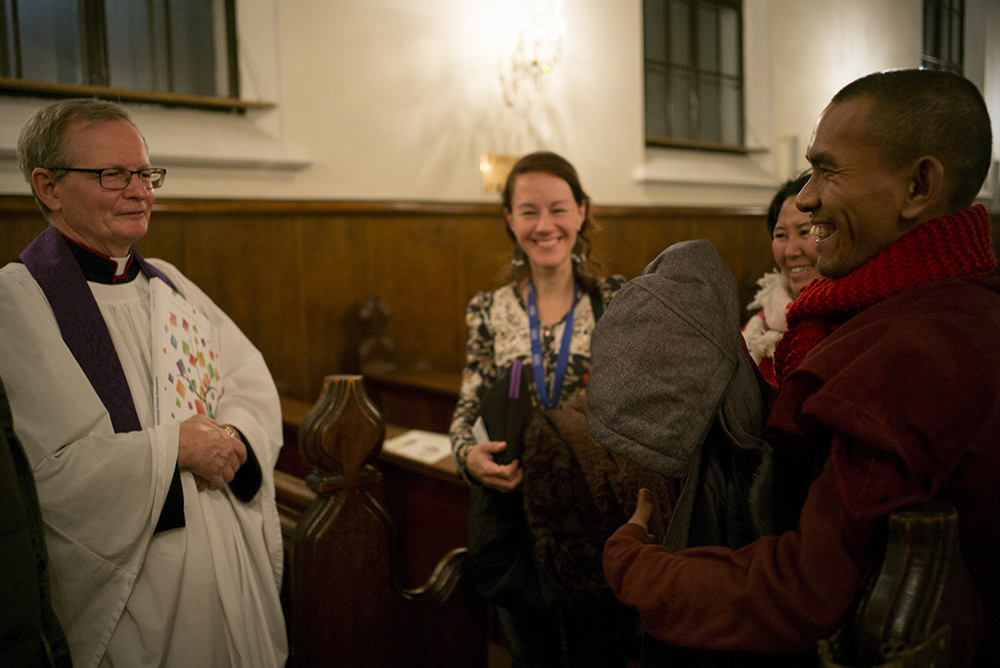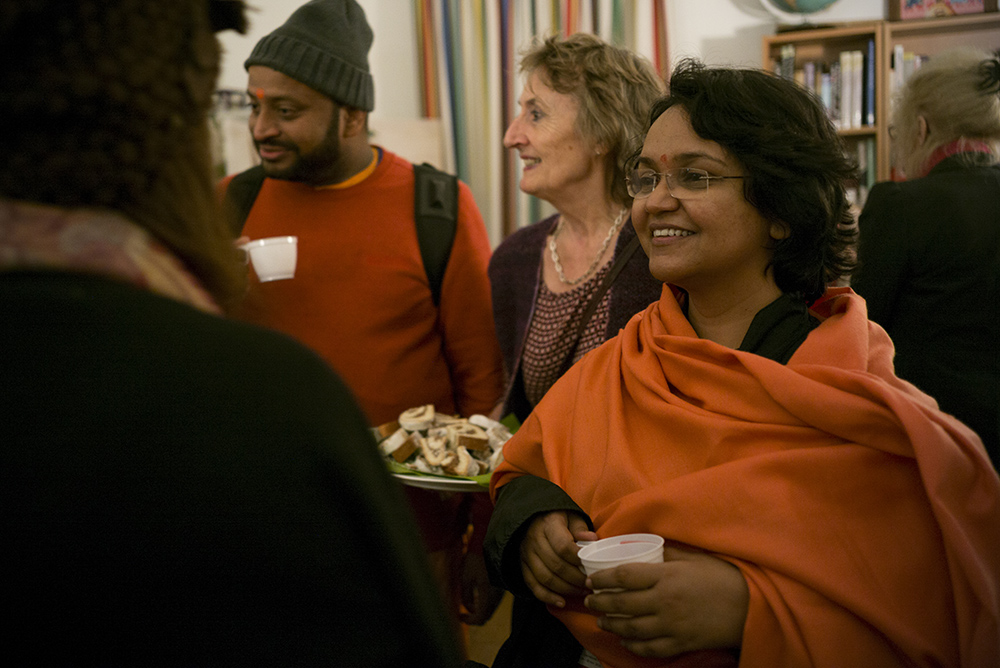Arab Region
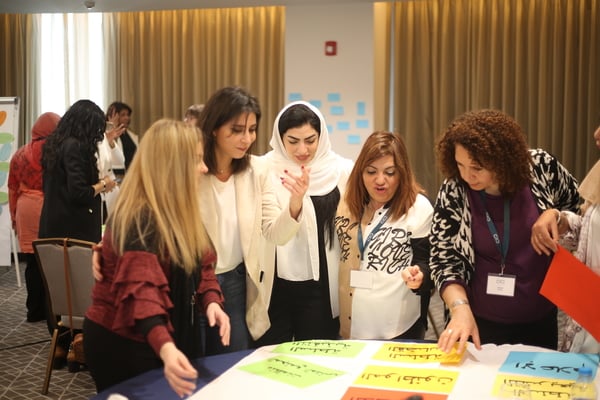
The Arab Region programme operates in a challenging context marked by diverse conflicts and crises alongside political and economic instability. Addressing these challenges requires a coordinated and specific joint response from various stakeholders, including religious, political, and social leaders, civil society, faith-based organizations, and the international community. Collaborative efforts focus on developing policies and programmes that promote social cohesion, rebuild trust, and counter hate speech. In this context, KAICIID will enhance its intervention strategy by expanding into new areas of peacebuilding, reconciliation, and promoting peaceful coexistence. The programme is working to engage new actors to address key themes such as faith and policy, intra-Muslim dialogue, faith and media, and inclusion, aiming to position KAICIID as a key peacebuilding actor in the Arab region. The goal is to empower and mobilise partners to improve national, constitutional, and societal frameworks that foster stability and peace.
A key focus of KAICIID’s work in the Arab region lies in collaboration with religious leaders and institutions, the media, local organizations, and policymakers to create a lasting impact. Initiatives such as Dialogue 360 support grassroot partner organizations in addressing and responding to the needs of their communities in issues related to peacebuilding, countering hate speech, and crises, while developing their knowledge and capacities in interreligious and intercultural dialogue. Through the Dialogue Journalism Fellowship (DJF), KAICIID equips journalists with the tools to report on religious diversity, counter hate speech, and promote inclusive narratives. The She for Dialogue programme empowers women to take active roles in leading interreligious dialogue and peacebuilding efforts in their communities. By working with policymakers and local organizations, KAICIID ensures that these initiatives are embedded into governance structures, promoting sustainable peace and social cohesion across the region.
KAICIID brings together diverse actors in the Arab region to foster dialogue, strengthen social cohesion, and address critical social challenges. One of our key platforms is the Interreligious Platform for Dialogue and Cooperation (IPDC), which unites religious leaders, civil society, and local organizations to collaborate on peacebuilding efforts. This platform encourages cross-sector partnerships to tackle issues such as religious intolerance, social fragmentation, and violent extremism.
Through initiatives such as Dialogue 360, KAICIID provides funds and technical support for the implementation of initiatives owned by local actors or organizations, in coordination with KAICIID’s established dialogue platforms and networks operating in the region. The Dialogue Journalism Fellowship (DJF) provides a platform for journalists to exchange best practices and develop strategies to combat hate speech, fostering a more inclusive media landscape. KAICIID also convenes policymakers, local organizations, and community leaders to integrate dialogue into governance frameworks, ensuring that peacebuilding efforts are sustainable and supported at all levels of society. These collaborative spaces empower communities to take ownership of dialogue and build resilient, peaceful societies across the Arab region.
KAICIID also plays a pivotal role in fostering collaboration between religious educators through the Network for Religious Christian and Muslim Faculties and Institutes in the Arab World. Launched in 2017, this network brings together key scholars and educators from Muslim and Christian theology and Sharia faculties across the region to promote interreligious dialogue as a core value in religious education. By connecting deans, senior lecturers, and students, the network facilitates the exchange of ideas, expertise, and educational tools that foster understanding, coexistence, and peace. It encourages participants to incorporate interreligious dialogue (IRD) practices into their curricula, empowering future religious leaders to be active peacemakers in their communities.
KAICIID’s capacity-building programmes in the Arab region equip religious leaders, journalists, civil society actors, and local organizations with the skills to lead interreligious dialogue and contribute to peacebuilding. Initiatives such as the She for Dialogue programme empower women to take active roles in fostering dialogue and leading peace efforts in their communities. Through the Dialogue Journalism Fellowship (DJF), we provide journalists with the tools to promote inclusive narratives, counter hate speech, and report on religious diversity in a way that strengthens social cohesion.
KAICIID also offers training for youth, religious leaders, and civil society through programmes such as Dialogue 360, which focuses on equipping partner institutions and organizations with dialogue facilitation and conflict resolution skills. By building the capacity of these local actors, KAICIID ensures that they are well-prepared to lead dialogue initiatives and address challenges within their own communities. These efforts contribute to long-term peace, helping communities to create more inclusive, resilient, and cohesive societies.
In addition to current initiatives, KAICIID has implemented several impactful programmes that continue to shape peacebuilding efforts across the Arab region. The Social Media as a Space for Dialogue programme aimed to counter hate speech by training religious actors, youth, media professionals, and civil society actors to use social media platforms as tools for promoting dialogue and countering online hostility.
KAICIID’s work in the Arab region goes beyond grassroots initiatives. Shaping policy and governance frameworks to ensure interreligious dialogue has become a key component of peacebuilding efforts. Through strategic partnerships with governments, religious institutions, and civil society, KAICIID actively works with local and national actors to integrate dialogue into policymaking, contributing to long-term social cohesion and sustainable peace. The Interreligious Platform for Dialogue and Cooperation (IPDC) brings together policymakers, religious leaders, and civil society to address regional challenges such as violent extremism, religious and ethnic discrimination, and social inequality. By fostering dialogue among these key actors, the IPDC strengthens governance structures that support peace and inclusive policies.
In the dynamic landscape of Arab media, the KAICIID Media Policy Forum project by the Arab Region Programme, aims to lead initiatives that catalyse dialogue among media professionals and policymakers, including religious actors. It is designed to complement the Dialogue Journalism Fellowship through activities that develop a better understanding of the potential contributions of interfaith and intercultural reporting in peacebuilding and influencing policies.
Through this sustainable approach of collaboration and networking with leading media organizations, journalists and decision makers, the forum provides strategic guidance via activities and publications in the form of policy papers, research, and charters. These resources support external actors within media initiatives and organizations in promoting dialogue and peacebuilding, ensuring "buy-in" for interfaith and peace ethics within the media sector, and influencing policymakers toward more inclusive policies.
